BOTANICALS
Botanicals are plant-derived substances valued for their medicinal, nutritional, or aromatic properties. The term "botanical" encompasses any part of a plant—whether leaves, roots, flowers, bark, seeds, or stems—that is utilized for therapeutic or wellness applications. These plant-based elements have long been central to a variety of traditional healing systems, including Traditional Chinese Medicine (TCM), Ayurveda, Native American practices, and others, where they serve as integral components in promoting health and restoring balance.
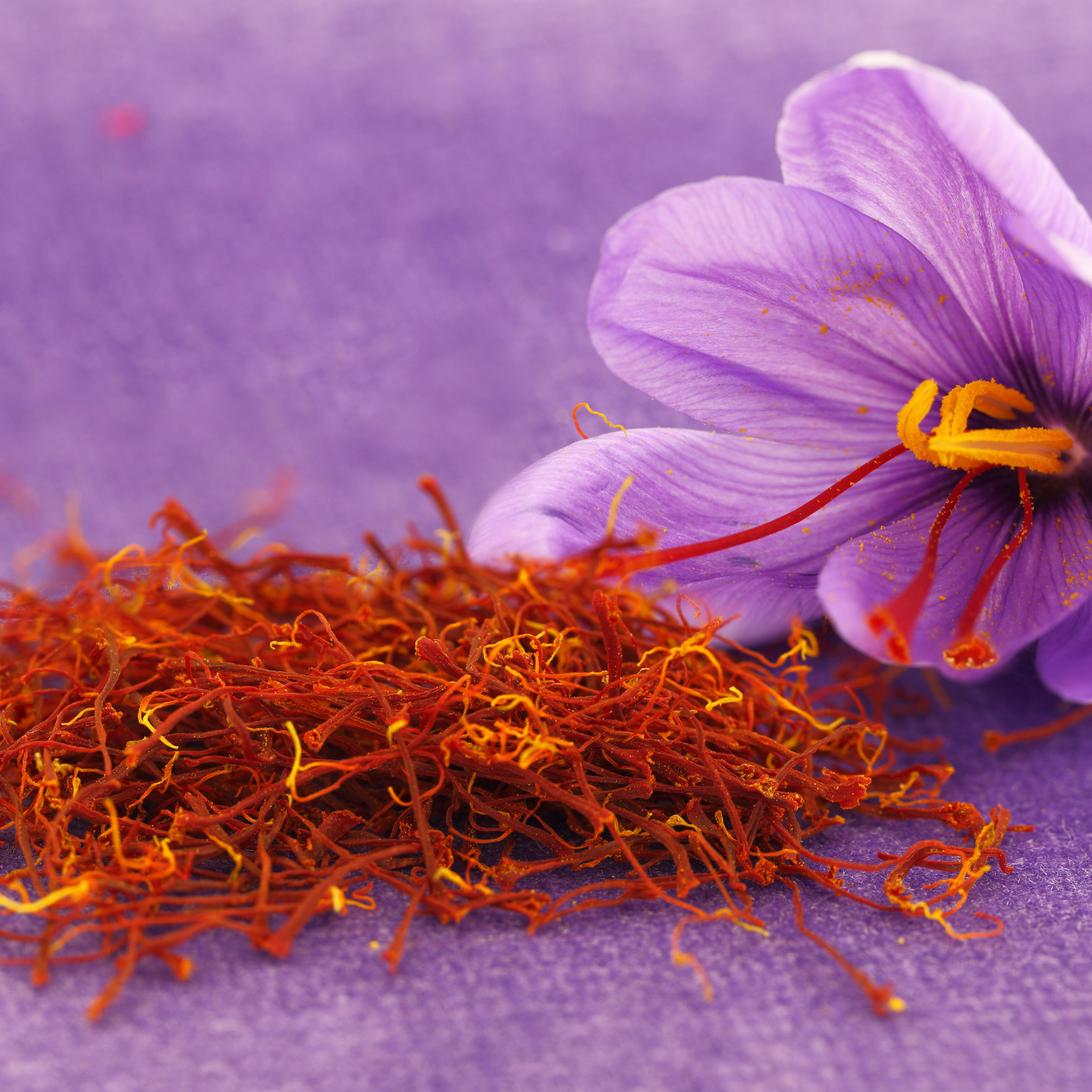
SAFFRON (Crocus sativus)
Saffron extract, derived from the precious Crocus sativus flower, is a natural powerhouse for mood, cognition, and emotional resilience. Within the Joyful Humans framework, saffron supports the microbiota-gut-brain axis (MGBA) by modulating serotonin, dopamine, and GABA pathways, helping to reduce anxiety, balance mood, and promote mental clarity. Its antioxidant and anti-inflammatory properties protect neurons and gut health, enhancing overall homeostasis. When combined with adaptogens, psychobiotics, or other botanicals, saffron offers a holistic approach to thriving, supporting healthy vagus nerve signaling, emotional balance, and cognitive performance.
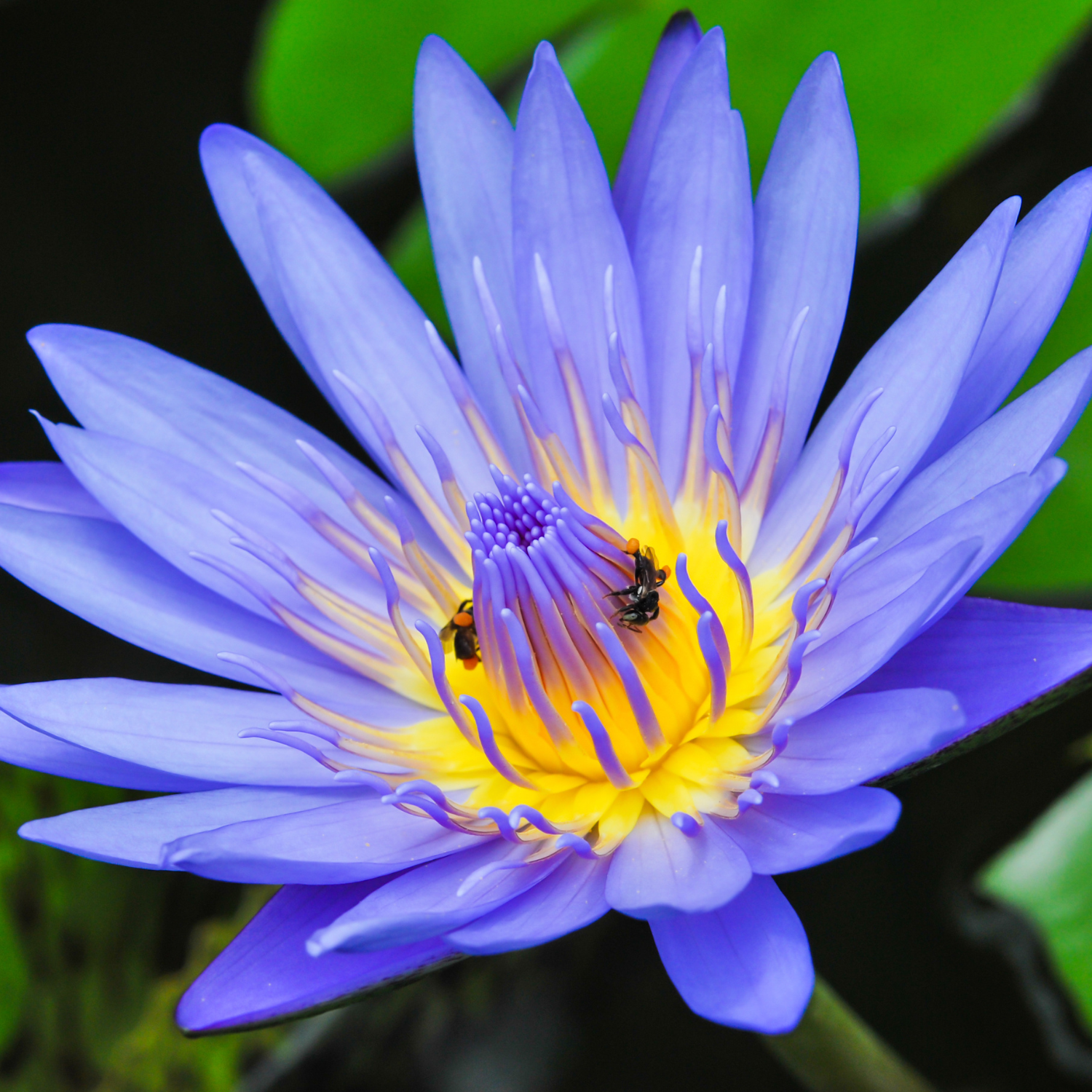
Blue Lotus (Nymphaea caerulea)
Blue Lotus Extract is derived from the flowers of the Nymphaea caerulea plant, a water lily native to Egypt and parts of Asia. The extract contains alkaloids and flavonoids that contribute to its calming and mood-supportive properties. Traditionally used in teas, tinctures, and ceremonial preparations, Blue Lotus Extract is believed to help promote relaxation, reduce stress, and support emotional well-being. It has been valued historically for mild sedative and euphoric effects, as well as its use in holistic wellness practices. Today, it is commonly incorporated into supplements, teas, and aromatherapy products for gentle relaxation and mood support.
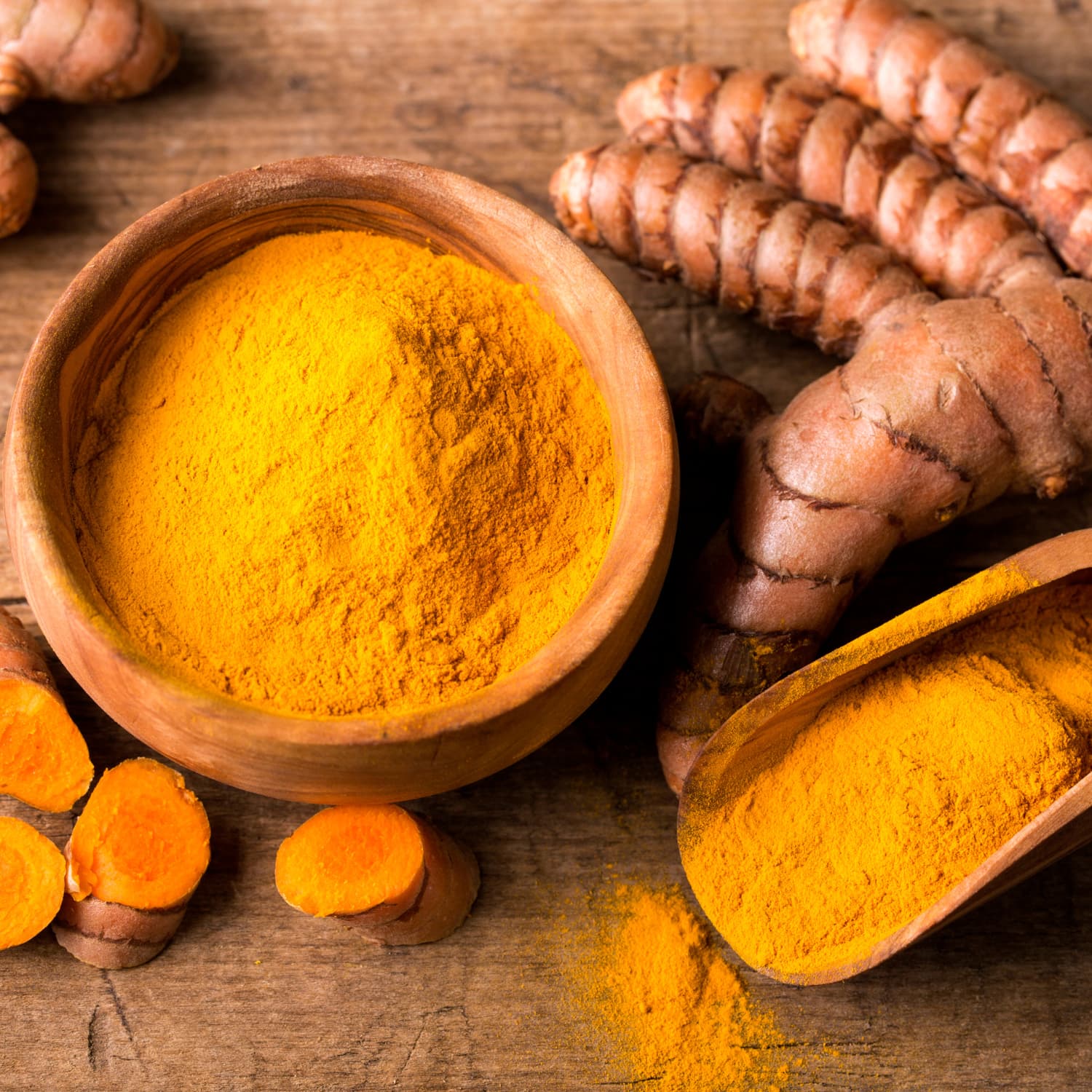
Turmeric (Curcuma longa)
Turmeric, derived from the rhizome of the Curcuma longa plant, is a bright yellow spice widely used in cooking and traditional medicine. Its primary bioactive compound, curcumin, is known for its anti-inflammatory, antioxidant, and digestive-supporting properties. Turmeric has been studied for its potential benefits in promoting joint health, cardiovascular support, and overall immune function. Traditionally used in Ayurvedic and Chinese medicine, it can be consumed as a spice, tea, tincture, or supplement. Curcumin’s bioavailability is often enhanced with black pepper or fats. Turmeric is valued for its versatility, natural healing potential, and long history of safe culinary and medicinal use.
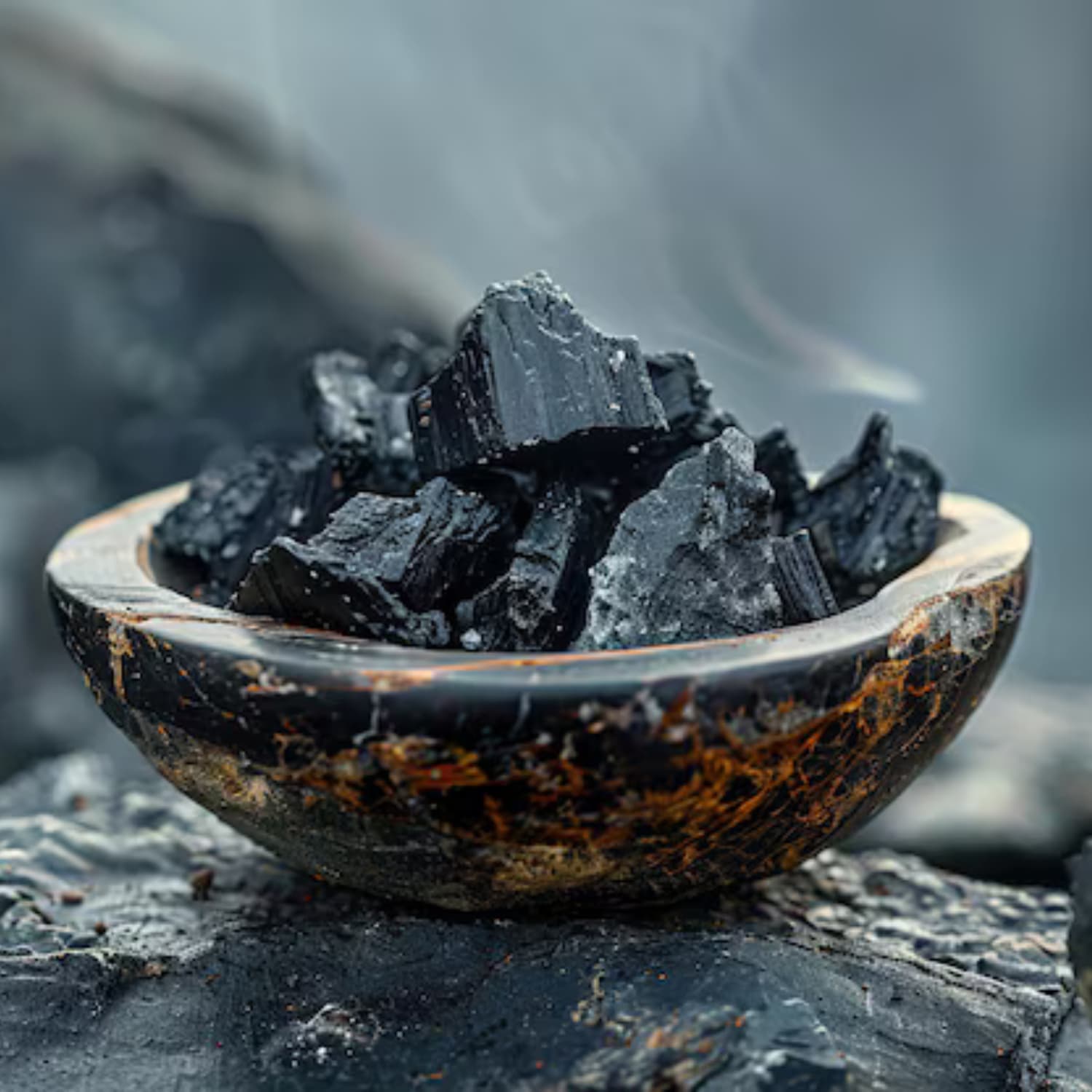
Shilajit (Karpura Shilajit)
Shilajit is a mineral-rich, tar-like substance found in the rocks of the Himalayas and other mountainous regions. Formed over centuries from the decomposition of plant material, it contains fulvic acid, humic compounds, and trace minerals. Traditionally used in Ayurvedic medicine, Shilajit is believed to support energy, stamina, and overall vitality. Its components may help enhance nutrient absorption, antioxidant activity, and cellular repair. Shilajit is typically consumed as a resin, powder, or supplement. Renowned for its adaptogenic properties, it has been valued historically for promoting physical resilience, cognitive support, and overall well-being in a natural, holistic way.
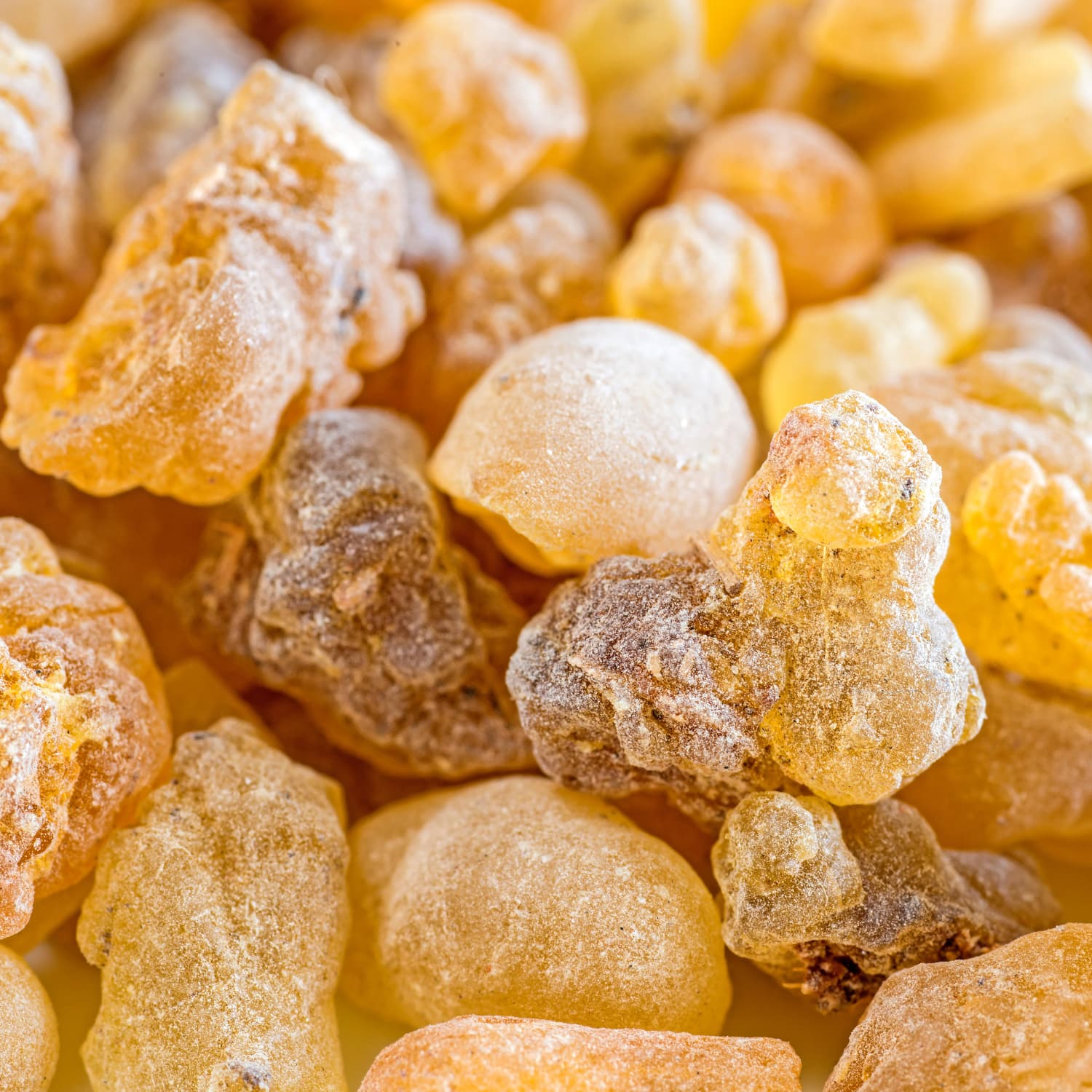
Boswellia (Boswellia serrata)
Boswellia, commonly known as Indian Frankincense, is a resin obtained from the Boswellia serrata tree, native to India and parts of Africa. It contains boswellic acids, which have been traditionally used in Ayurvedic medicine for their anti-inflammatory and analgesic properties. Boswellia has been studied for its potential to support joint health, respiratory function, and overall inflammatory balance. The resin can be used in powdered form, capsules, or extracts. Valued for centuries in both ceremonial and medicinal contexts, Boswellia is prized for its soothing effects, immune support, and contribution to physical comfort and wellness in a natural, plant-based form.
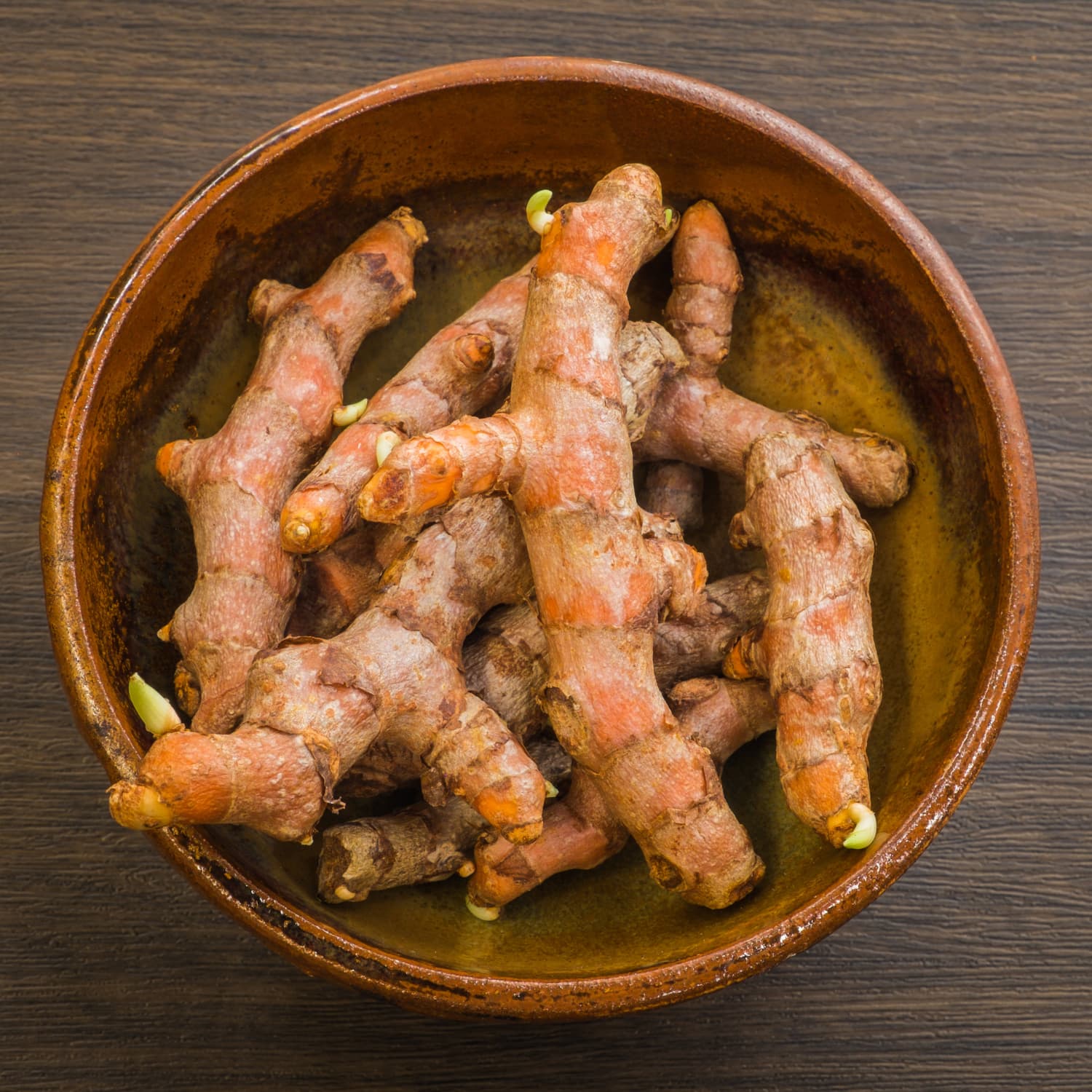
Ginger Root (Zingiber officinale)
Ginger root, derived from the rhizome of Zingiber officinale, is a widely used spice and medicinal plant known for its digestive and anti-inflammatory properties. Traditionally utilized in both culinary and herbal medicine practices, ginger supports healthy digestion, nausea relief, and gastrointestinal comfort. Its bioactive compounds, including gingerols and shogaols, contribute to its antioxidant, antimicrobial, and circulation-supporting effects. Ginger can be consumed fresh, dried, powdered, as a tea, or in supplements. Valued globally for centuries, it is often incorporated into wellness routines, natural remedies, and cooking for its flavor, health-supportive properties, and overall soothing and invigorating effects.
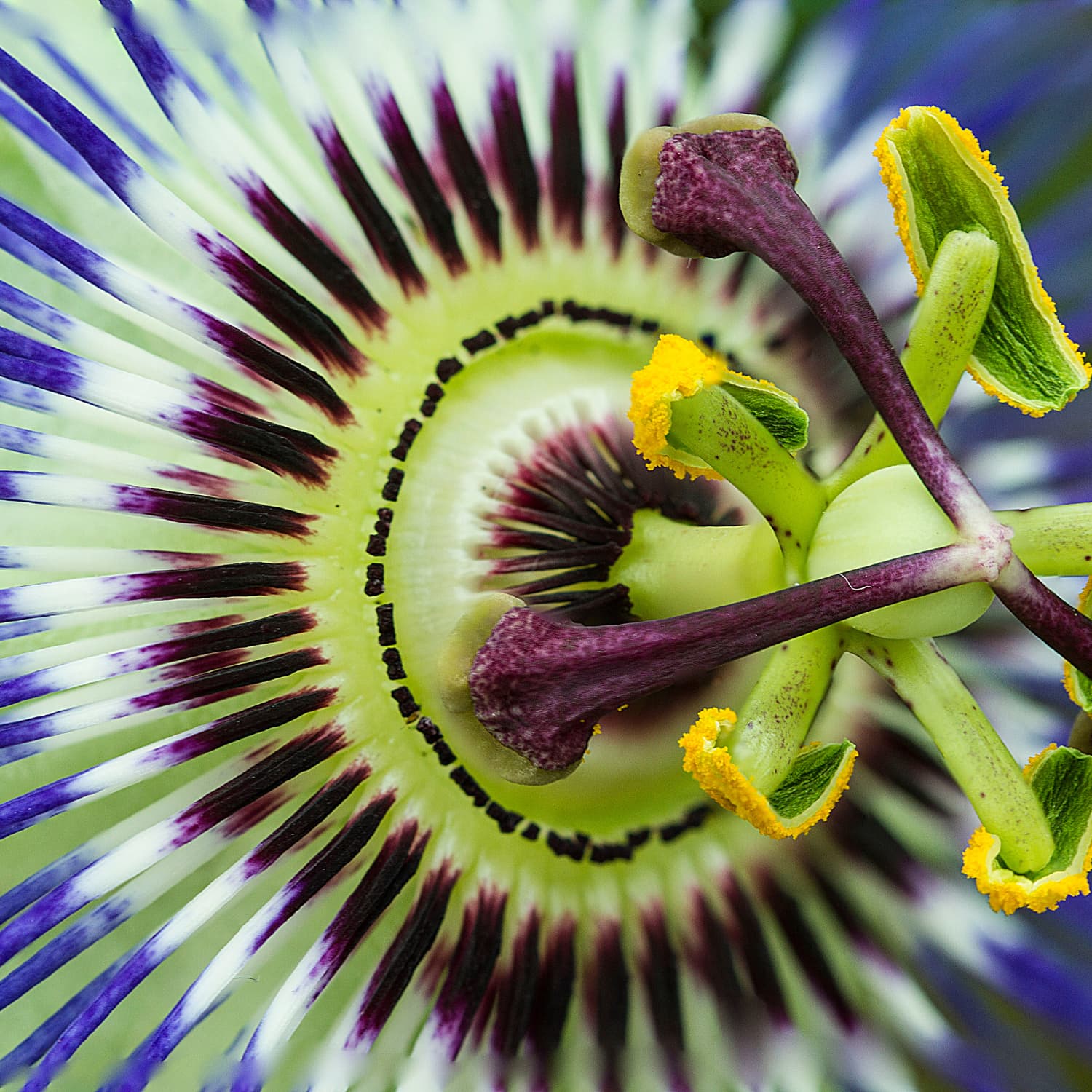
Passionflower (Passiflora incarnata)
Passion Flower, derived from the Passiflora incarnata vine, is a botanical traditionally used for its calming and sleep-supportive properties. Native to the Americas, it has a long history in herbal medicine for reducing mild anxiety, promoting relaxation, and supporting restful sleep. The plant contains flavonoids and alkaloids that interact with the nervous system, helping to gently soothe tension and encourage emotional balance. Passion Flower can be consumed as a tea, tincture, or in supplement form. Valued for centuries for its natural calming effects, it is often included in herbal formulations aimed at relaxation, stress relief, and overall wellness.

Holy Basil (Ocimum tenuiflorum)
Holy Basil, also known as Tulsi, is an aromatic herb native to India and revered in traditional Ayurvedic medicine. It is valued for its adaptogenic properties, which help the body respond to stress and maintain balance. Holy Basil contains bioactive compounds such as eugenol, ursolic acid, and rosmarinic acid, which contribute to its anti-inflammatory, antioxidant, and immune-supportive effects. Commonly consumed as a tea, tincture, or supplement, Holy Basil has been used to support mental clarity, emotional balance, and overall wellness. Its long history of use highlights its role as a natural, holistic herb for vitality.
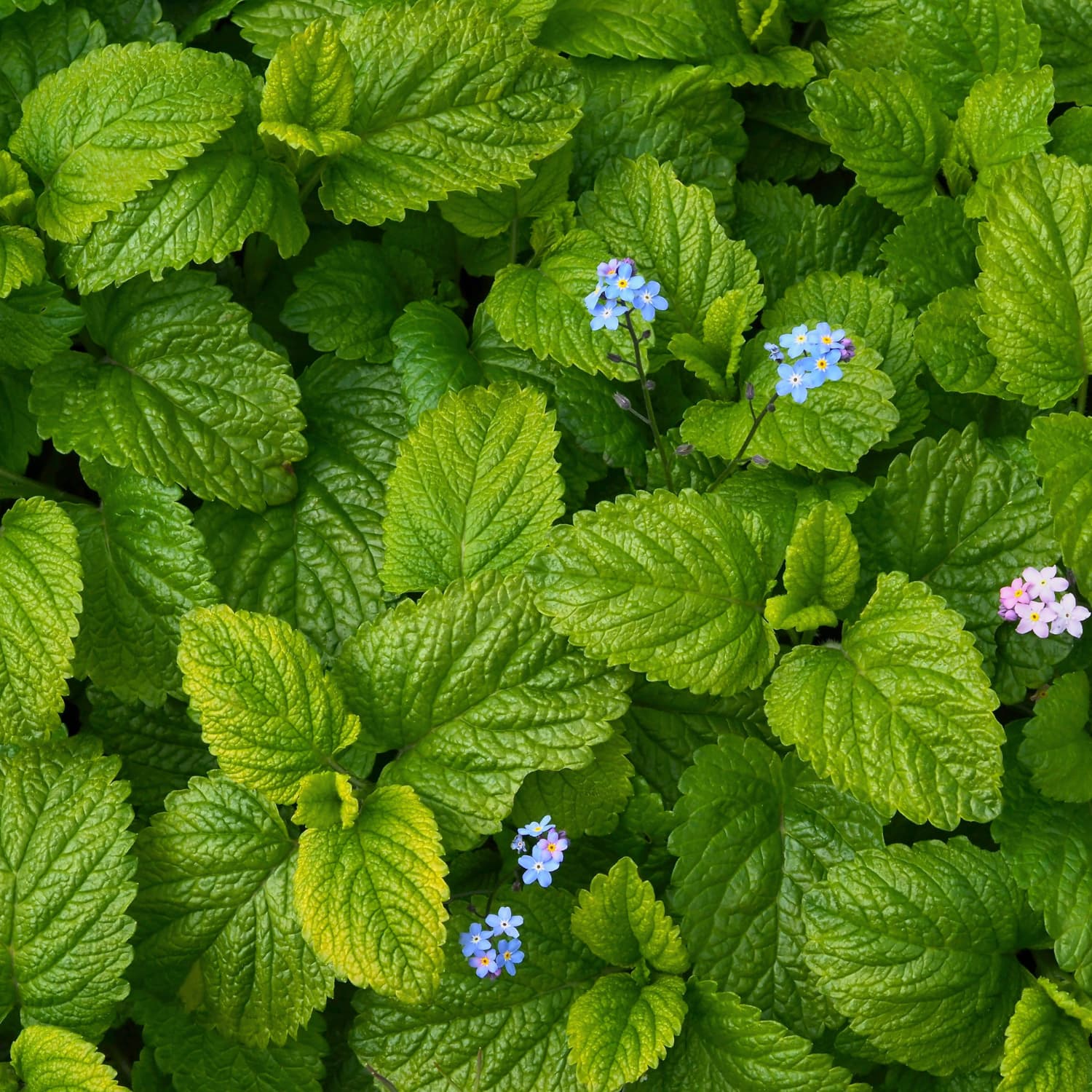
Lemon Balm (Melissa officinalis)
Lemon Balm is a perennial herb in the mint family, native to Europe and the Mediterranean. Traditionally used in herbal medicine, it is valued for its calming, mood-supportive, and digestive-soothing properties. The leaves contain bioactive compounds such as rosmarinic acid and flavonoids, which contribute to its mild sedative, antioxidant, and antiviral effects. Lemon Balm is commonly consumed as a tea, tincture, or supplement to support relaxation, restful sleep, and emotional well-being. With a long history of use in traditional remedies, it remains a popular natural herb for promoting calm, comfort, and overall wellness in a gentle, holistic way.
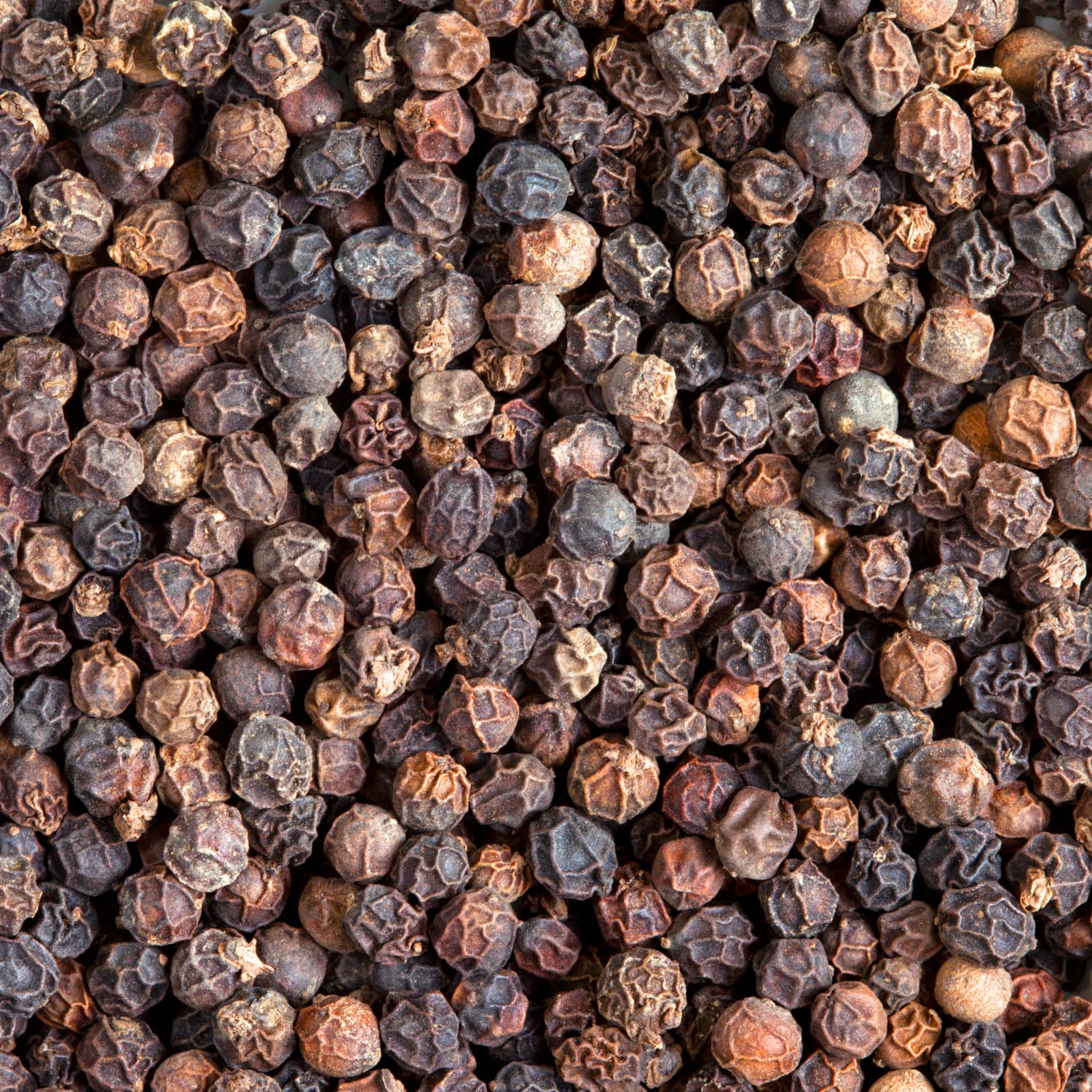
Black Peppercorn (Piper nigrum)
Black Pepper Extract is derived from the fruit of the Piper nigrum plant, commonly known as black pepper. Its primary bioactive compound, piperine, is valued for its antioxidant, anti-inflammatory, and digestive-supportive properties. Piperine has been shown to enhance the bioavailability of various nutrients and compounds, improving absorption and efficacy when combined with other herbs or supplements. Traditionally used in culinary and medicinal contexts, black pepper has been incorporated into herbal remedies for digestive comfort, metabolic support, and general wellness. The extract is available in capsules, tinctures, or powders and is prized for its ability to maximize nutrient utilization and support overall health.
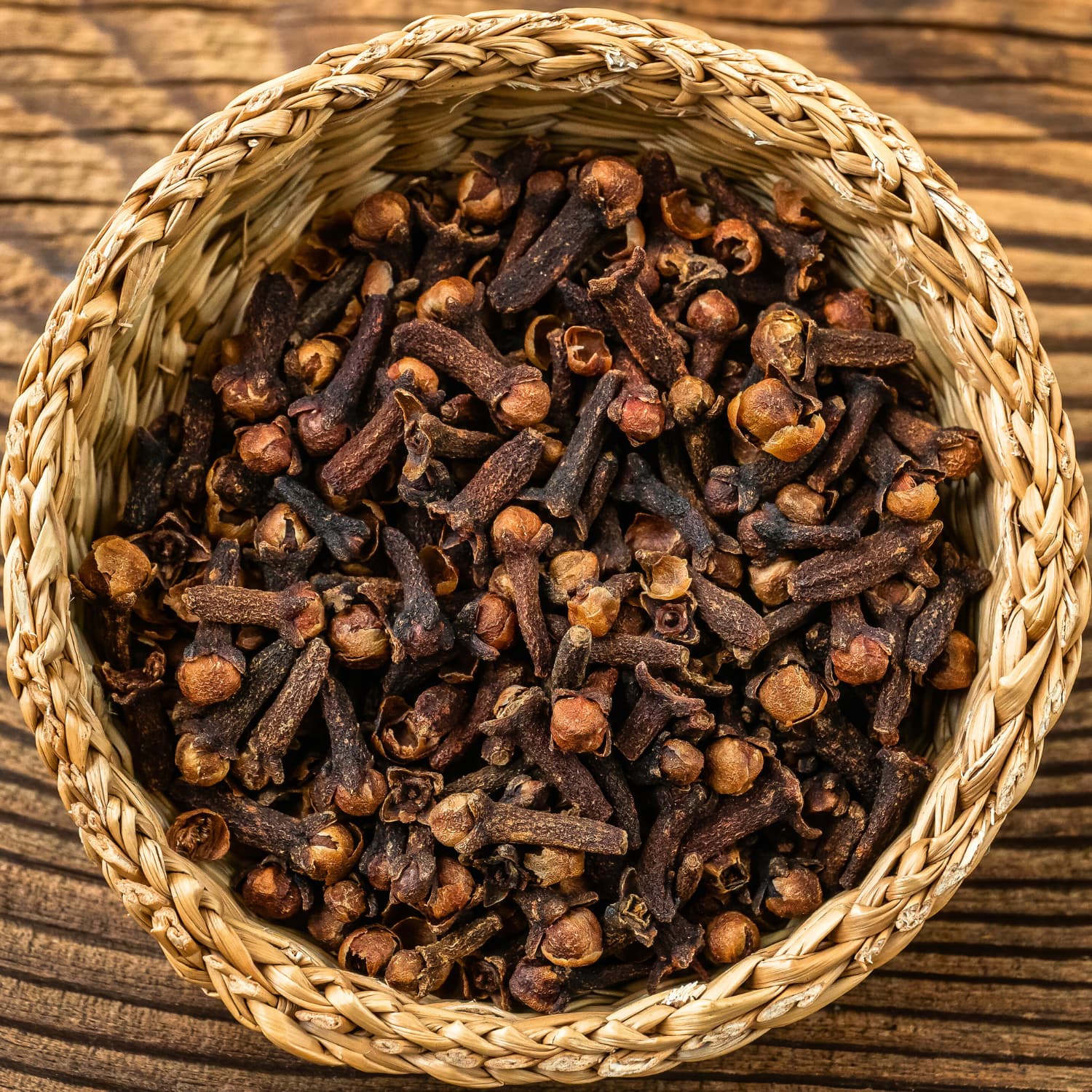
Clove (Syzygium aromaticum)
Clove Extract is derived from the dried flower buds of the Syzygium aromaticum tree, a spice long valued for culinary and medicinal uses. It contains bioactive compounds such as eugenol, which contribute to its antimicrobial, antioxidant, and anti-inflammatory properties. Traditionally used in herbal medicine, clove extract supports oral health, digestive comfort, and immune function. It is commonly included in tinctures, capsules, and oils for its warming, aromatic qualities and natural health-supportive effects. With a long history of safe use, clove extract remains a versatile botanical valued for its wellness-promoting properties, flavor, and gentle preservative qualities.
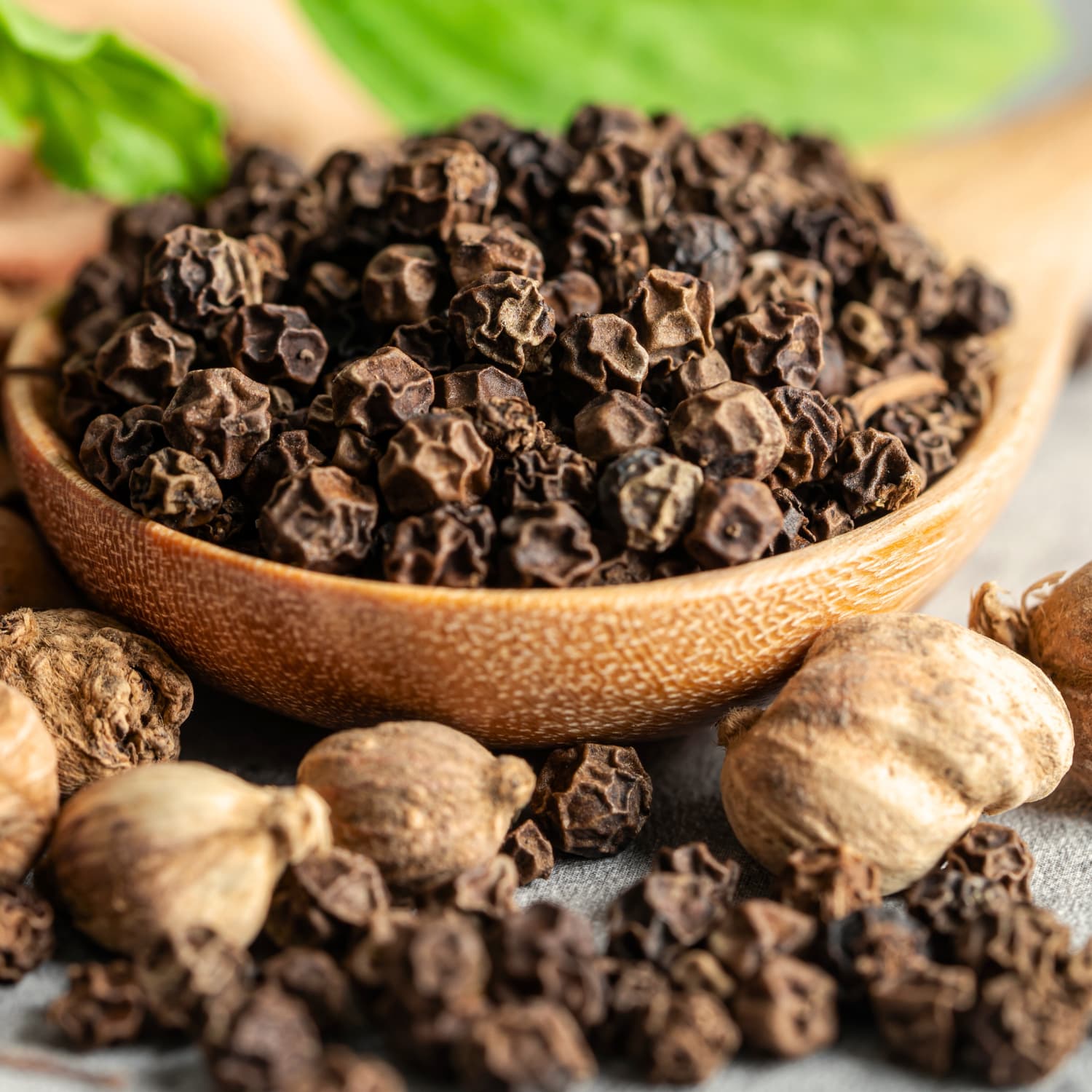
Nutmeg (Myristica fragrans)
Nutmeg, the seed of the Myristica fragrans tree, is a spice native to the Banda Islands of Indonesia. Traditionally used in culinary and medicinal contexts, nutmeg is valued for its aromatic flavor and natural warming properties. It contains bioactive compounds such as myristicin, elemicin, and eugenol, which contribute to its antioxidant, anti-inflammatory, and digestive-supportive effects. Nutmeg has been historically used to support digestion, mild relaxation, and overall wellness. Commonly consumed in small amounts as a spice or in essential oils and supplements, nutmeg continues to be appreciated for its culinary versatility and traditional health-supportive benefits.
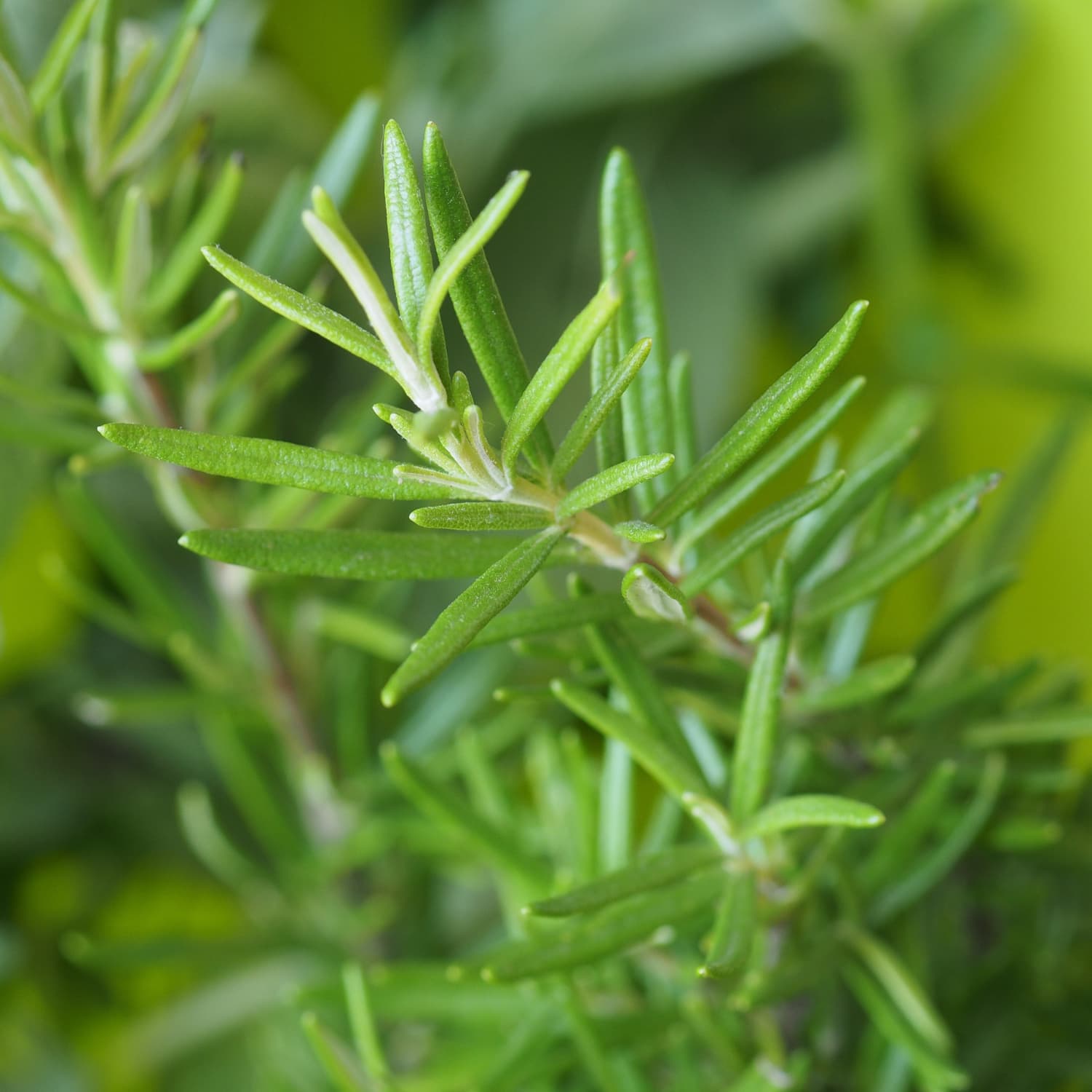
Rosemary (Rosmarinus officinalis)
Rosemary Extract is derived from the leaves of the Rosmarinus officinalis plant, a fragrant herb native to the Mediterranean region. Rich in bioactive compounds such as carnosic acid, rosmarinic acid, and essential oils, it is valued for its antioxidant, anti-inflammatory, and antimicrobial properties. Traditionally used in culinary, medicinal, and preservative applications, rosemary extract supports cognitive function, digestion, and overall wellness. It can be consumed as a tincture, capsule, or incorporated into foods and beverages. With a long history of safe use, rosemary extract remains a versatile botanical prized for its natural health-supportive effects, aroma, and flavor.
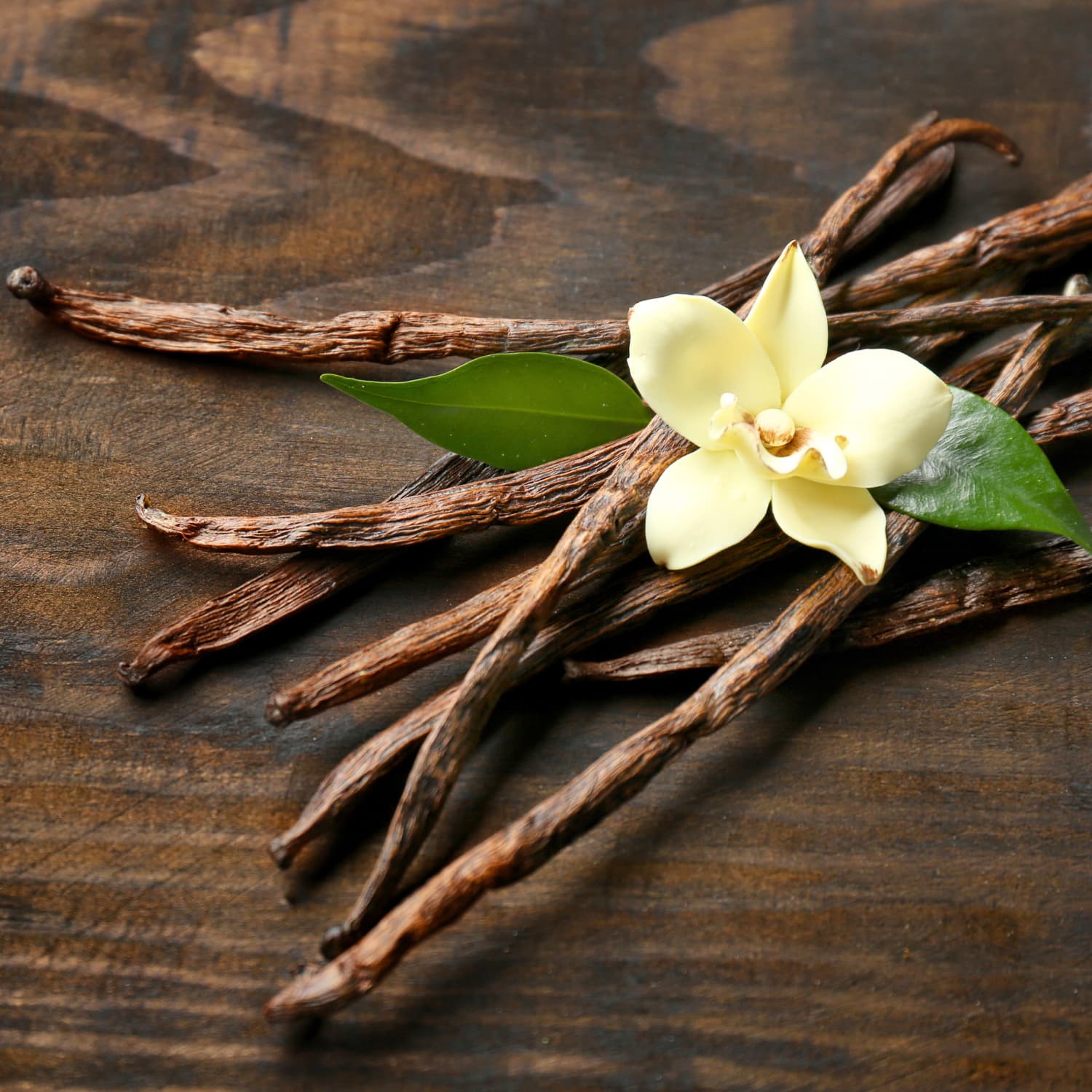
Vanilla (Vanilla planifolia)
Madagascar Vanilla is derived from the pods of the Vanilla planifolia orchid, primarily cultivated in Madagascar, which produces some of the world’s most prized and aromatic vanilla. Valued for its rich, creamy flavor and natural fragrance, it is widely used in culinary, beverage, and confectionery applications. Beyond its taste, Madagascar Vanilla contains vanillin and other phenolic compounds, which exhibit antioxidant and mild antimicrobial properties. Traditionally, it has been used for flavoring, aromatherapy, and as a natural soothing agent. Available as whole beans, extracts, or powders, Madagascar Vanilla remains a highly sought-after ingredient for its versatility, sensory appeal, and subtle wellness-supporting qualities.
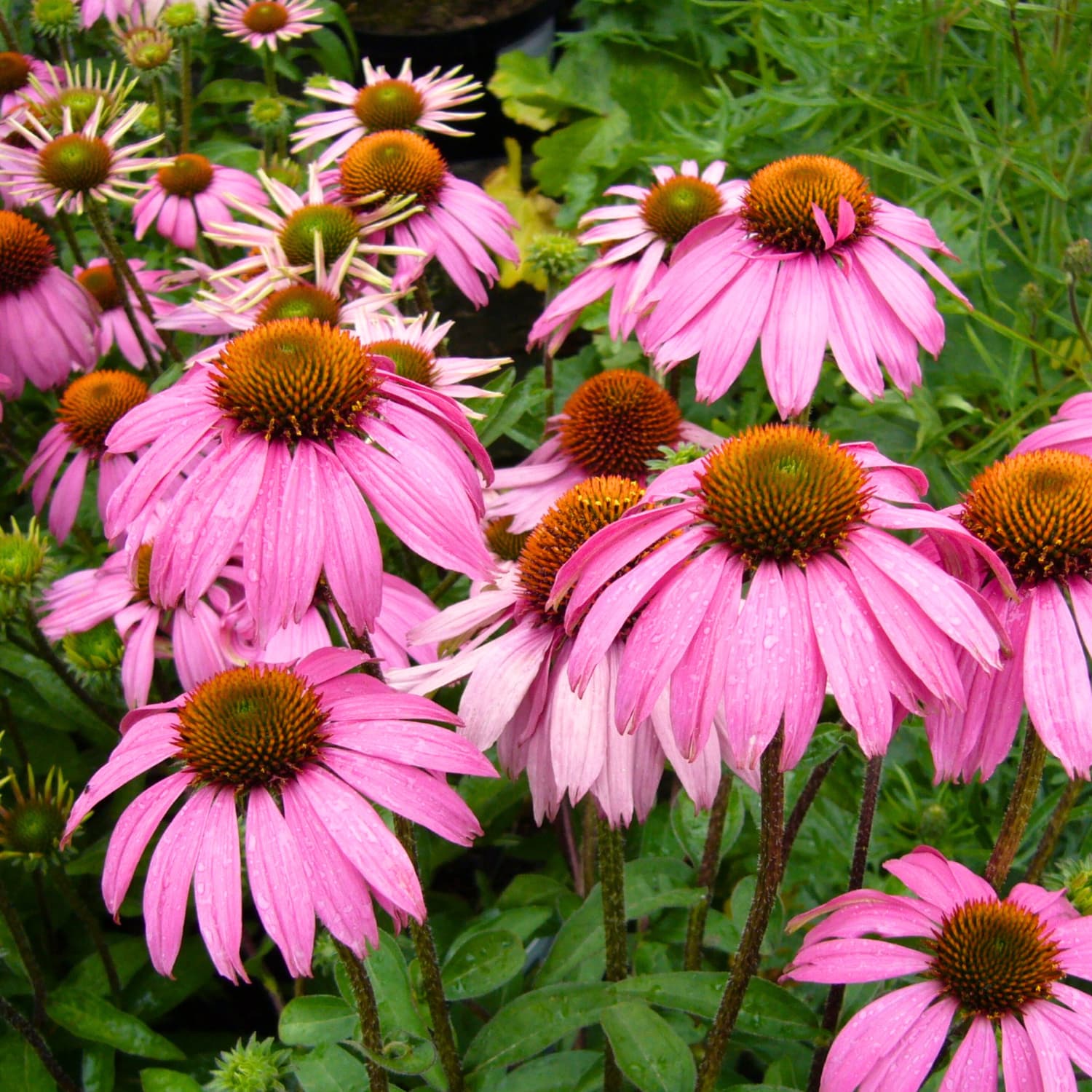
Echinacea (Echinacea purpurea)
Echinacea, commonly known as purple coneflower, is a flowering plant native to North America and widely used in herbal medicine. Its roots, leaves, and flowers contain alkamides, polysaccharides, and caffeic acid derivatives, which contribute to its immune-supportive, antioxidant, and anti-inflammatory properties. Traditionally, Echinacea has been used to support respiratory health, reduce the severity and duration of common colds, and promote overall wellness. It is commonly consumed as teas, tinctures, capsules, or extracts. Valued for centuries by Indigenous peoples and modern herbalists alike, Echinacea remains a popular botanical for natural immune support and holistic health.
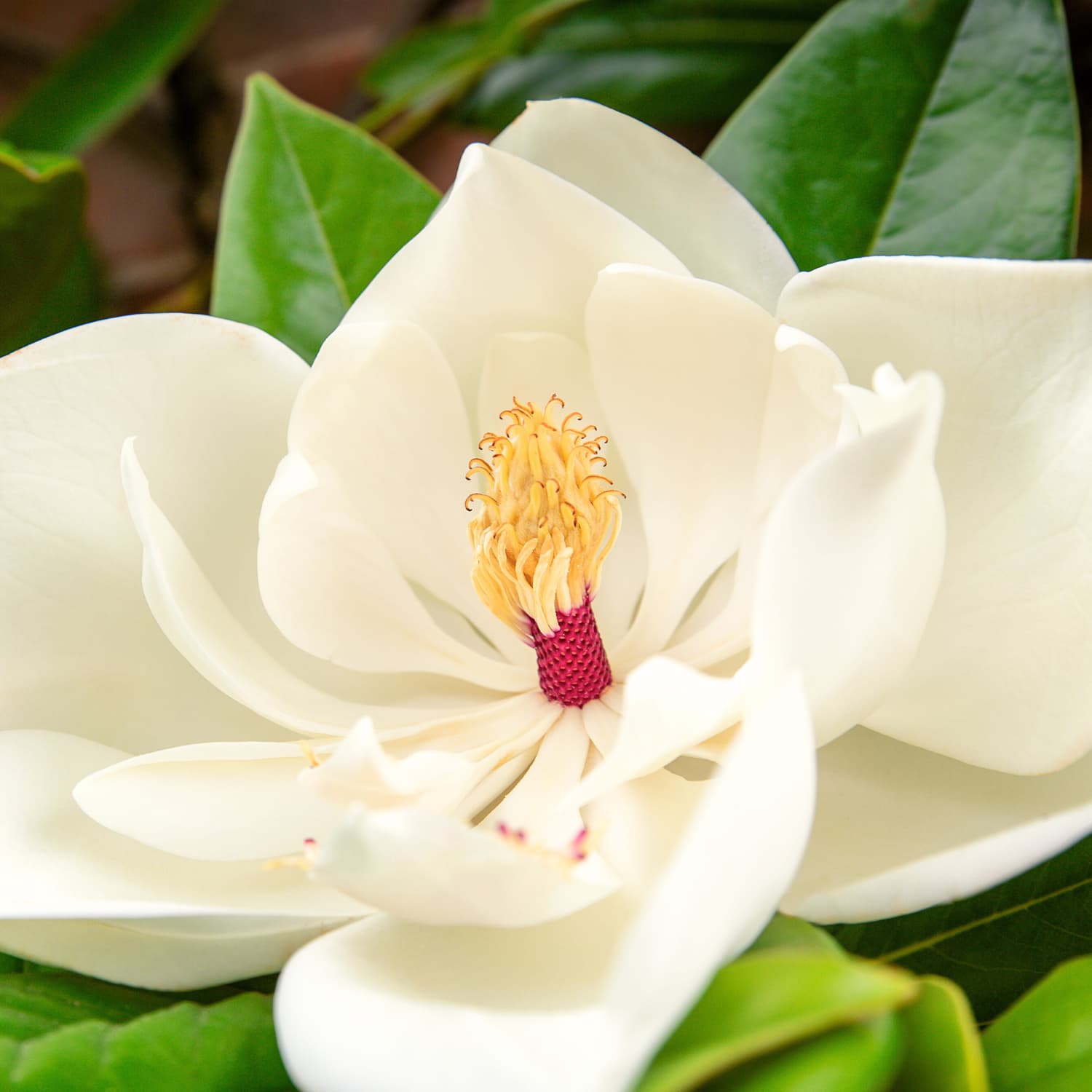
Magnolia (Magnolia officinalis)
Magnolia Bark, derived from the Magnolia officinalis tree, is a time-honored botanical used in traditional medicine for its calming and therapeutic properties. Rich in bioactive compounds like honokiol and magnolol, it exerts powerful anti-anxiety and stress-reducing effects by modulating GABA receptors in the brain, promoting relaxation without drowsiness. Magnolia bark also supports healthy cortisol levels, helping manage the body’s stress response. Additionally, it possesses antioxidant and anti-inflammatory properties that contribute to overall health and may aid in improving sleep quality, mood balance, and cognitive clarity.
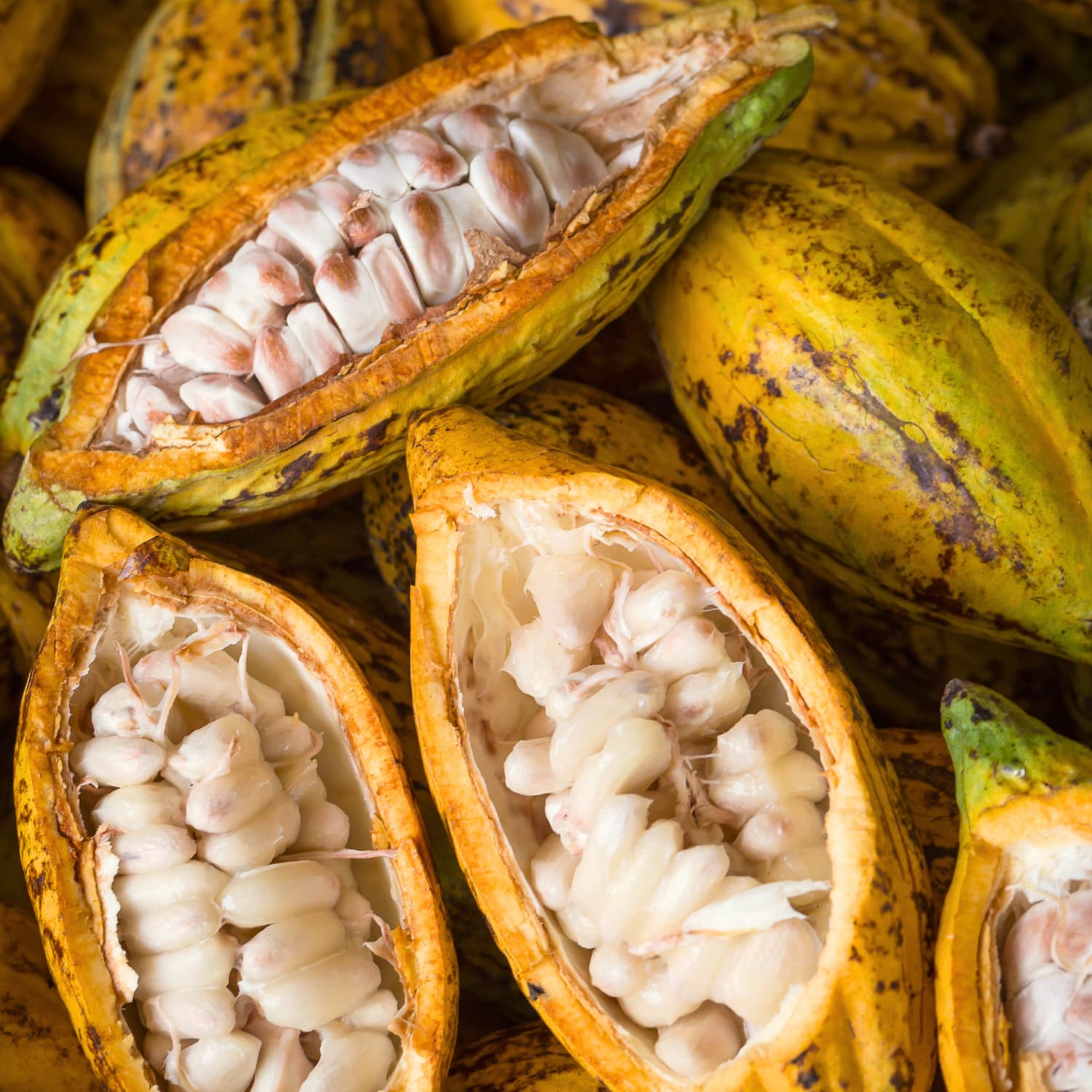
Cocoa/ Cacao (Theobroma Cacao)
Cacao is a nutrient-rich superfood celebrated for its deep, chocolatey flavor and impressive health benefits. It’s packed with flavonoids and antioxidants that support heart health, improve circulation, and help reduce inflammation. Cacao naturally boosts mood by encouraging the release of feel-good neurotransmitters like serotonin, dopamine, and endorphins, contributing to a sense of happiness and well-being. It’s also a great source of magnesium, which supports relaxation, muscle function, and brain health. Additionally, cacao contains theobromine, offering mental clarity without the jitters of caffeine. Indulging in cacao is a powerful way to nourish body and mind.
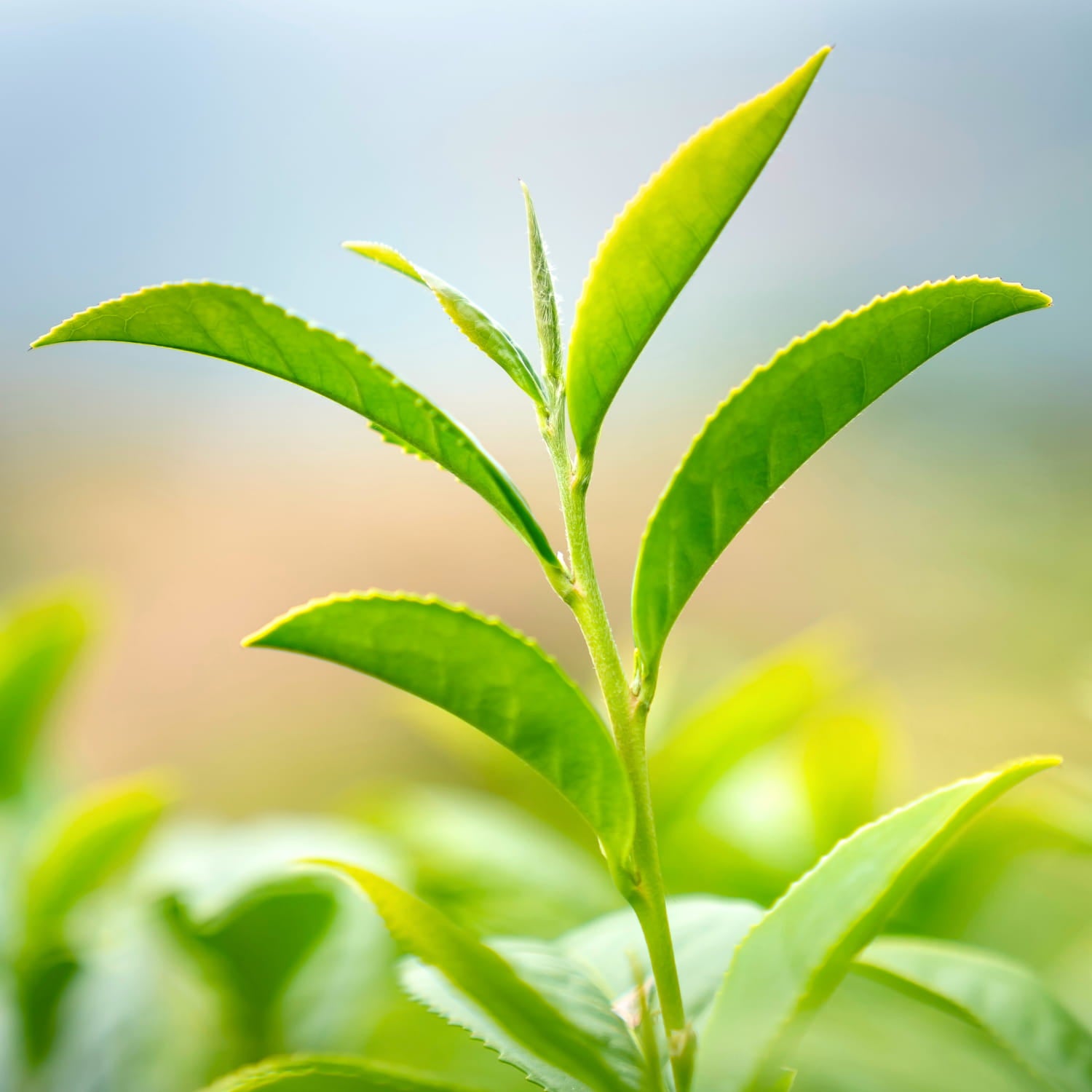
Green Tea Extract (Camellia sinensis)
Green Tea is a treasured superfood renowned for its potent health benefits and gentle, refreshing taste. Rich in antioxidants like catechins, particularly EGCG, green tea helps protect cells from oxidative stress, supports heart health, and may aid in maintaining a healthy metabolism. It contains L-theanine, an amino acid that promotes calm focus, reduces stress, and smooths out the stimulating effects of its natural caffeine content, providing alertness without jitters. Green tea also supports brain health, may enhance fat oxidation, and contributes to overall wellness. Enjoyed daily, it’s a soothing ritual that nourishes both body and mind.
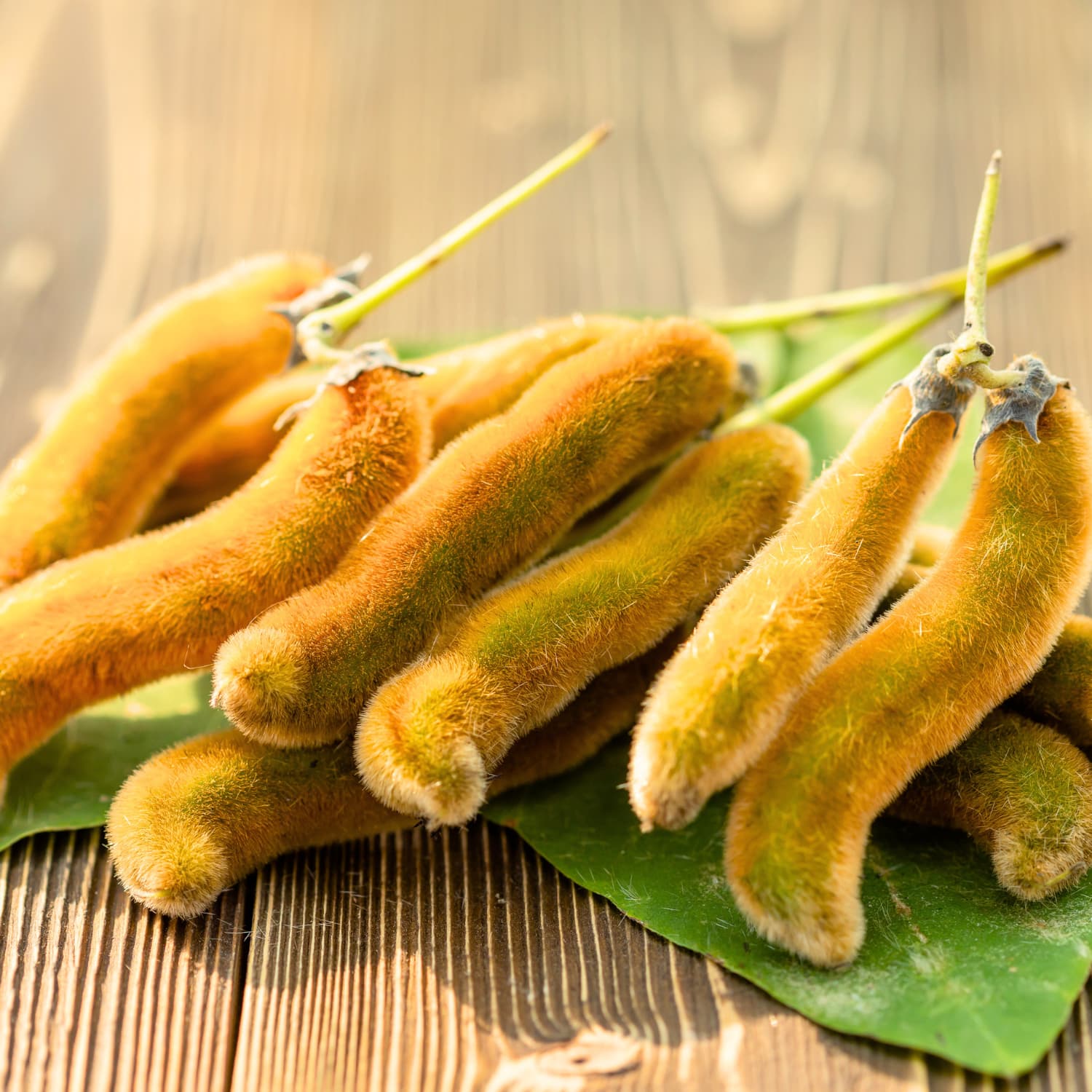
Mucuna Pruriens (Velvet Bean)
Mucuna Pruriens, also known as the “velvet bean,” is a potent botanical prized for its high natural content of L-DOPA, a direct precursor to dopamine. By supporting healthy dopamine levels, it enhances mood, motivation, and mental focus, making it valuable for stress resilience and emotional balance. Mucuna also aids in reducing stress and anxiety, supporting a calm yet energized state. It’s been studied for benefits in neurological health, potentially aiding motor function and protecting brain cells from oxidative stress. Additionally, it may support libido and overall vitality, making it a versatile herb for both mental and physical well-being.
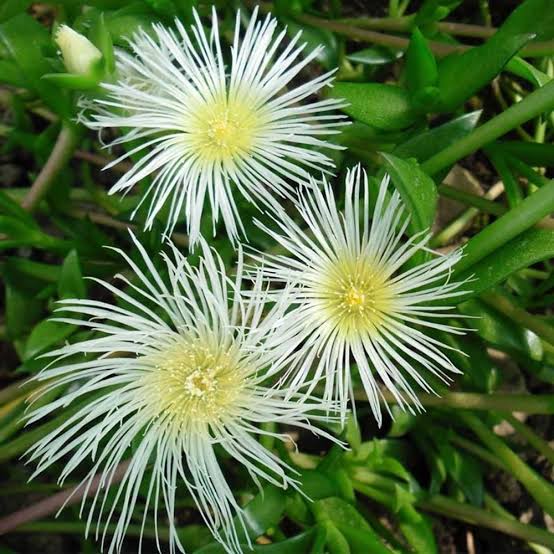
Kanna (Sceletium tortuosum)
Kanna is a remarkable succulent native to South Africa, cherished for its mood-enhancing and calming properties. Traditionally used to ease stress and lift spirits, Kanna works by inhibiting serotonin reuptake, naturally boosting feelings of well-being and emotional balance. It also offers gentle anxiolytic effects, helping to reduce anxiety and promote a sense of relaxation without causing sedation. Additionally, Kanna has mild PDE4 inhibitory activity, which may contribute to cognitive clarity and resilience under stress. Valued for enhancing mood, social ease, and mental focus, Kanna is a powerful botanical ally for emotional health and tranquility.
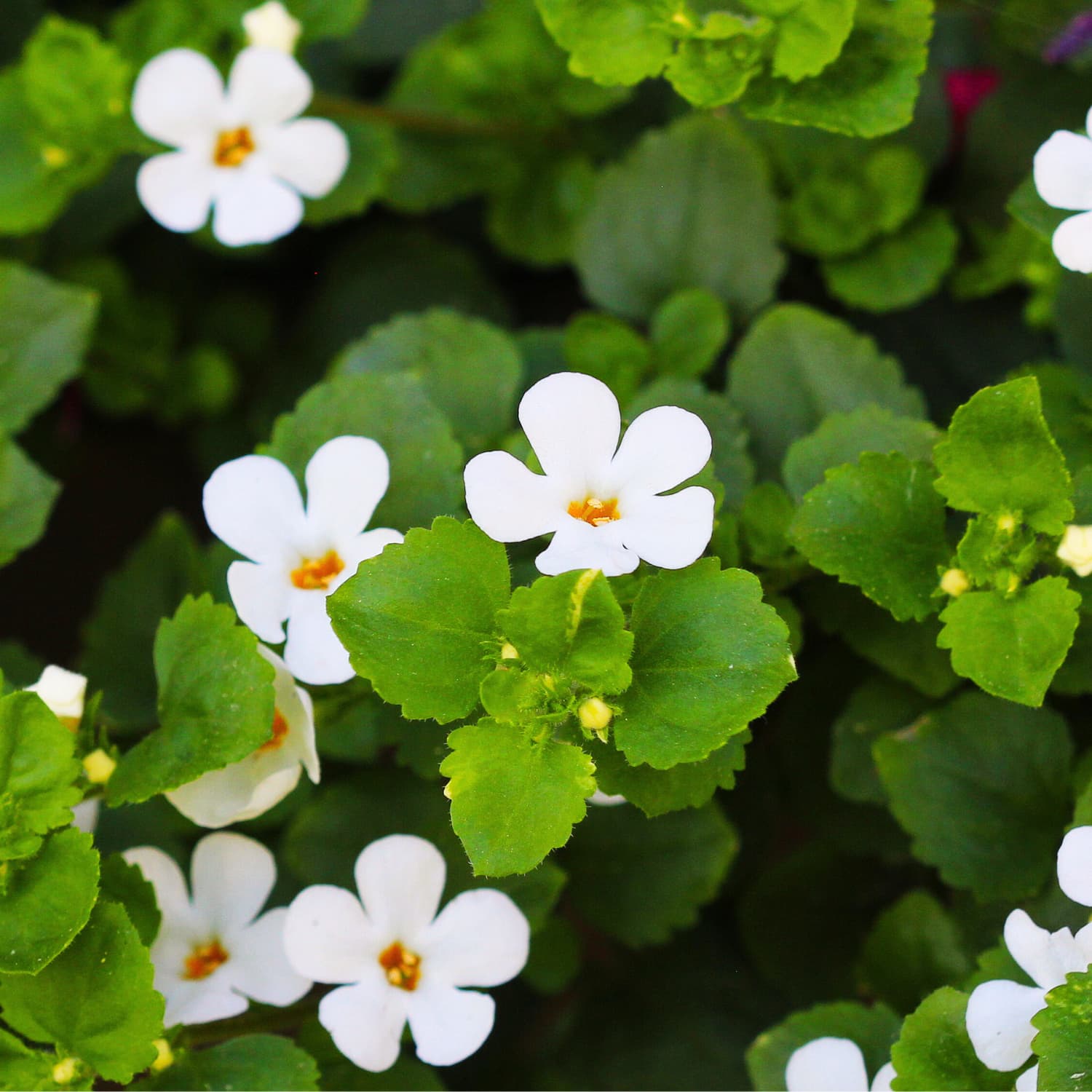
Brahmi (Bacopa Monnieri)
Bacopa Monnieri is a revered herb in traditional Ayurvedic medicine celebrated for its cognitive and adaptogenic benefits. Rich in active compounds called bacosides, Bacopa supports memory, learning, and mental clarity by enhancing neuron communication and protecting brain cells from oxidative stress. It helps reduce anxiety and stress by modulating neurotransmitters like serotonin and GABA, fostering a calm yet focused state of mind. Research suggests Bacopa may improve attention, processing speed, and overall cognitive performance, making it a powerful ally for mental resilience. Gentle and well-tolerated, it’s valued for promoting long-term brain health and emotional balance.
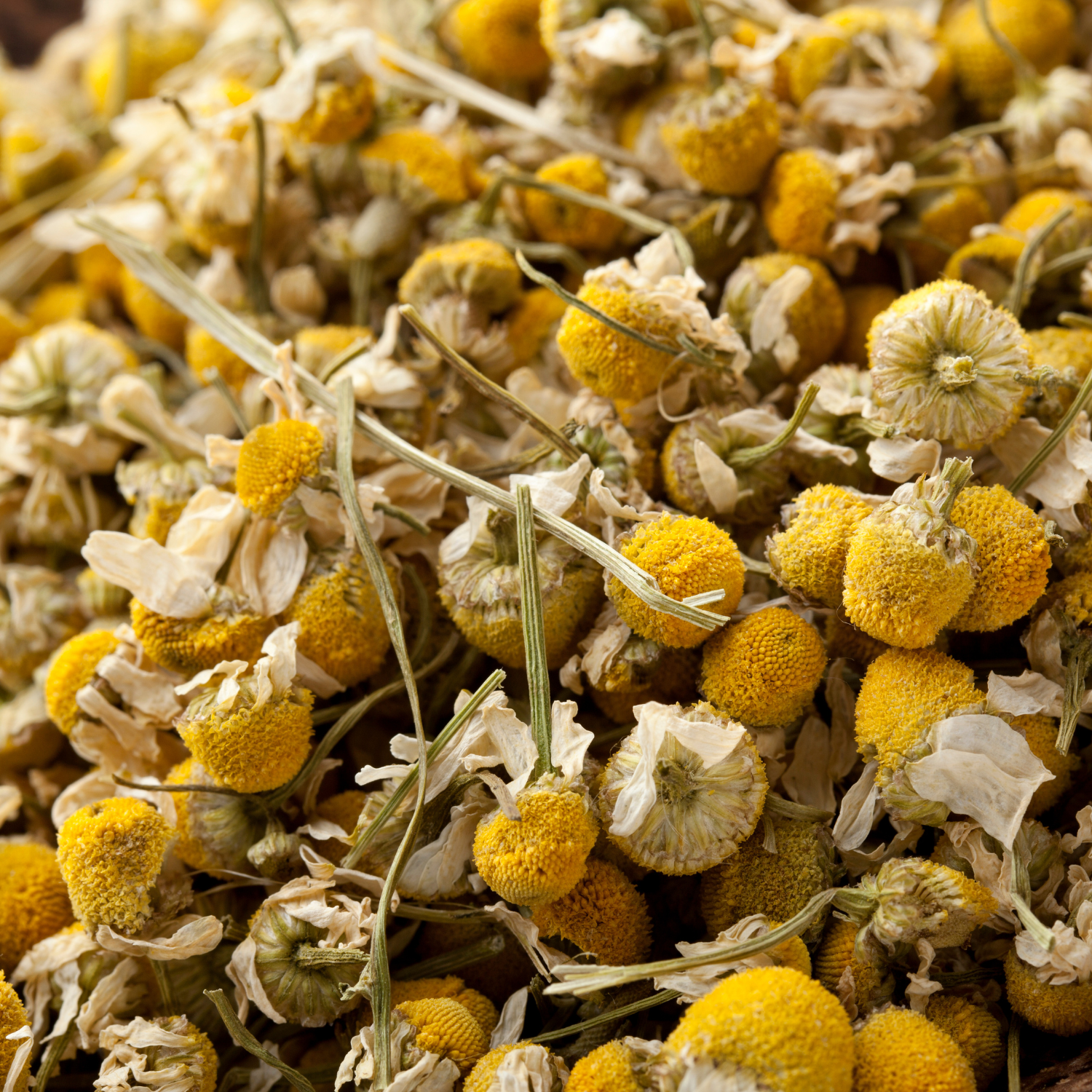
CHAMOMILE (Chamaemelum nobile)
Chamomile is a flowering herb from the Asteraceae family, commonly used for its calming and soothing properties. Its flowers contain bioactive compounds such as apigenin, flavonoids, and essential oils, which contribute to its mild sedative, anti-inflammatory, and antioxidant effects. Traditionally consumed as a tea, tincture, or extract, chamomile has been used to support relaxation, restful sleep, digestive comfort, and skin health. Its gentle, floral flavor and long history of use make it a popular botanical for stress relief, calming routines, and overall wellness. Chamomile remains valued worldwide for its natural, safe, and versatile health-supportive benefits.
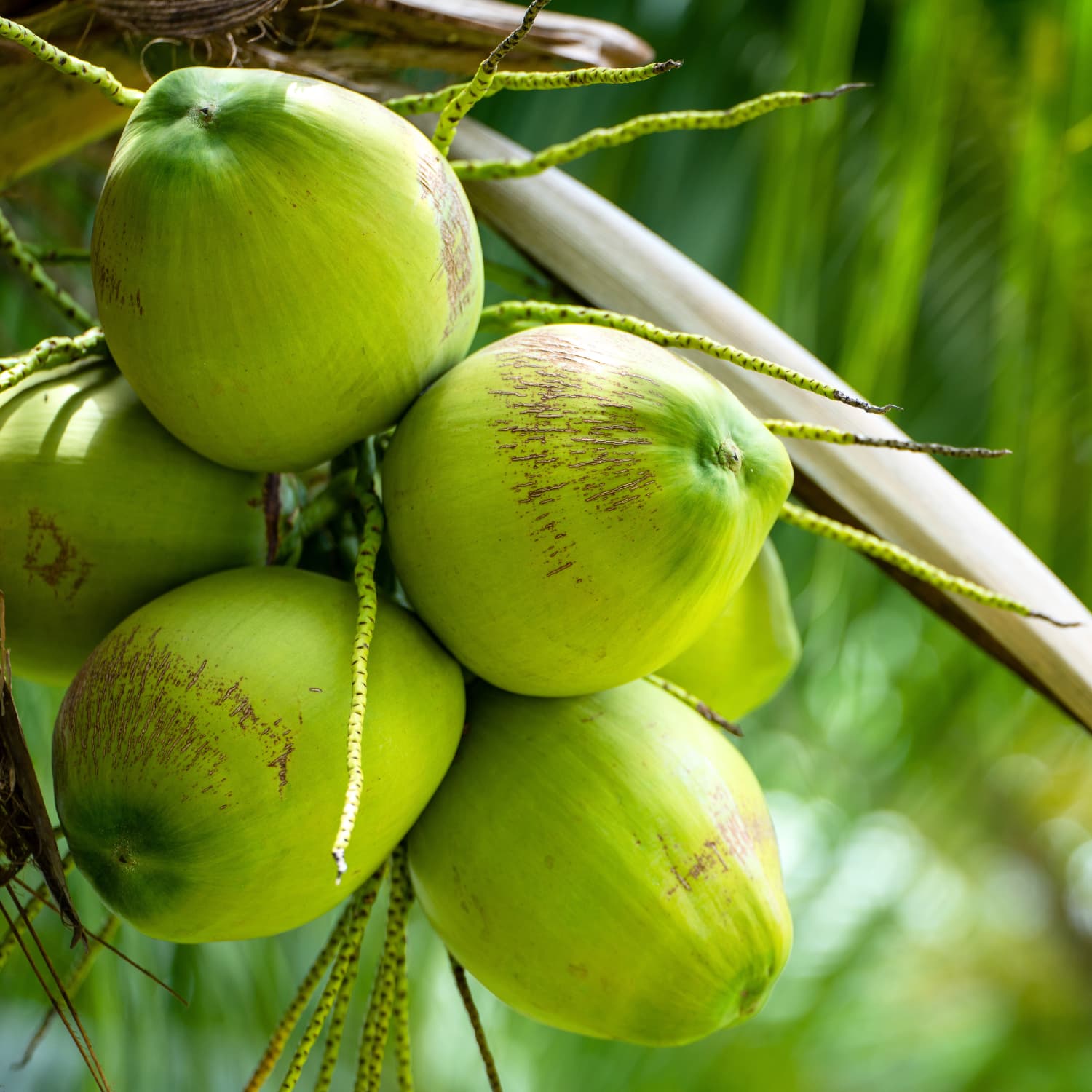
Coconut (Cocos nucifera)
Coconut is a versatile superfood celebrated for its delicious flavor and impressive health benefits. Rich in healthy fats, particularly medium-chain triglycerides (MCTs), coconut provides a quick, efficient energy source that supports metabolism and brain function. Its natural antibacterial and antiviral properties help promote immune health, while its fiber content aids digestion and satiety. Coconut also contains essential minerals like manganese and copper, contributing to bone health and antioxidant defense. Whether enjoyed as coconut oil, water, milk, or flakes, coconut offers nourishing benefits for heart health, cognitive performance, and overall well-being, making it a tropical treasure in any diet.
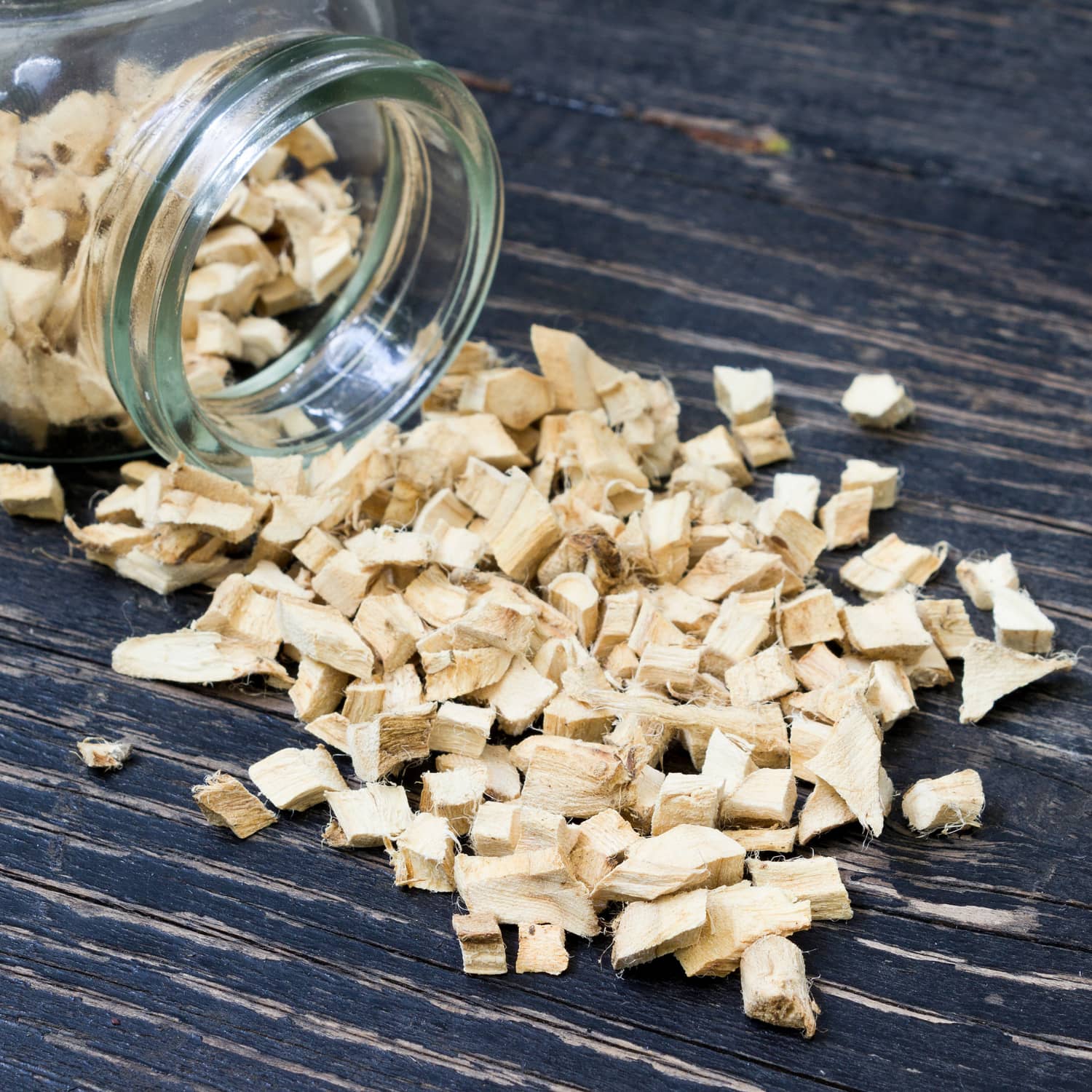
MARSHMALLOW ROOT (Althaea officinalis)
Marshmallow Root is the dried root of Althaea officinalis, a perennial herb native to Europe, Western Asia, and North Africa. It contains mucilage, flavonoids, and polysaccharides, which provide soothing and protective properties for mucous membranes. Traditionally used in herbal medicine, Marshmallow Root supports digestive comfort, throat and respiratory wellness, and skin hydration. Commonly consumed as a tea, tincture, capsule, or incorporated into syrups and topical formulations, it offers gentle, natural support for soothing irritation and maintaining mucosal health. Valued for centuries, Marshmallow Root remains a popular botanical for holistic & wellness applications.

SLIPPERY ELM (Ulmus rubra)
Slippery Elm is a tree native to North America, known for its inner bark, which has been used for centuries in traditional herbal medicine. The bark contains mucilage, antioxidants, and many phenolic compounds, giving it soothing and protective properties. It is commonly used to support digestive health, throat comfort, and gastrointestinal lining integrity. Slippery Elm can be prepared as a drink (tea), powder, capsule, or lozenge and is valued for its gentle, natural support for esophageal and stomach comfort, inflammation relief, and mucosal health. Its long history of use highlights its reliable, mild, and holistic wellness benefits.

White Mulberry (Morus alba L.)
White mulberry extract, standardized as Reducose®, offers impressive benefits for metabolic health and longevity. Rich in bioactive compounds like DNJ (1-deoxynojirimycin), it slows carbohydrate digestion and absorption, helping reduce post-meal blood sugar spikes and improving insulin sensitivity. By moderating glucose levels, white mulberry may lower the risk of chronic conditions like type 2 diabetes and metabolic syndrome, both key factors influencing lifespan and healthspan. Additionally, its antioxidant properties combat oxidative stress and inflammation, protecting cells from age-related damage. Through supporting balanced blood sugar and cellular health, white mulberry extract plays a valuable role in promoting graceful aging.

Ancient Peat & Apple Extract
ElevATP®, a proprietary blend of ancient peat and apple polyphenols, offers remarkable benefits for longevity and cellular vitality. It’s clinically shown to increase endogenous ATP production, fueling cellular energy without overstimulation or added caffeine. By enhancing mitochondrial efficiency, ElevATP® supports better muscle performance, mental clarity, and resilience against age-related decline. Apple polyphenols provide potent antioxidant protection, shielding cells from oxidative stress and promoting healthy DNA integrity. Together, these ingredients help combat fatigue, preserve metabolic function, and may slow cellular aging processes. ElevATP® and apple extract empower your body at a cellular level, supporting vibrant energy and a longer, healthier life.
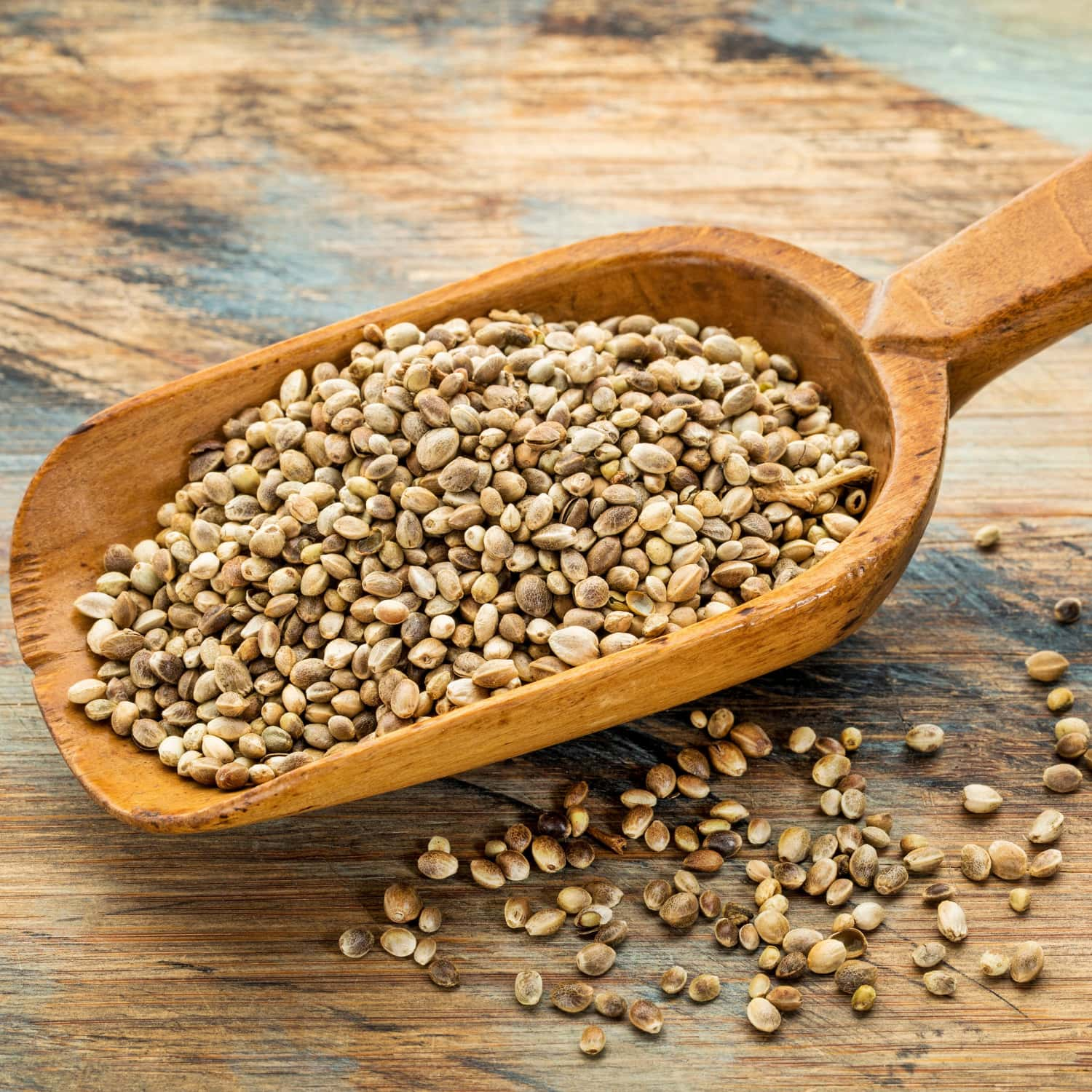
Hemp SEEDS
Hemp seeds are a complete nutritional powerhouse packed with essential fatty acids, high-quality plant protein, and vital micronutrients. They contain the ideal 3:1 ratio of omega-6 to omega-3 fatty acids, supporting heart health, brain function, and reduced inflammation. Rich in gamma-linolenic acid (GLA), hemp seeds can help balance hormones and ease PMS symptoms. Their 30% protein content containing all nine essential amino acids supports muscle repair and metabolic health. Hemp is an excellent source of magnesium, iron, zinc, and B vitamins, promoting energy production and immune function. The fiber in hemp seeds aids digestion and gut microbiome balance, while antioxidants help combat oxidative stress. With their dense nutrient profile, hemp seeds are an effortless way to enhance overall vitality and homeostasis.
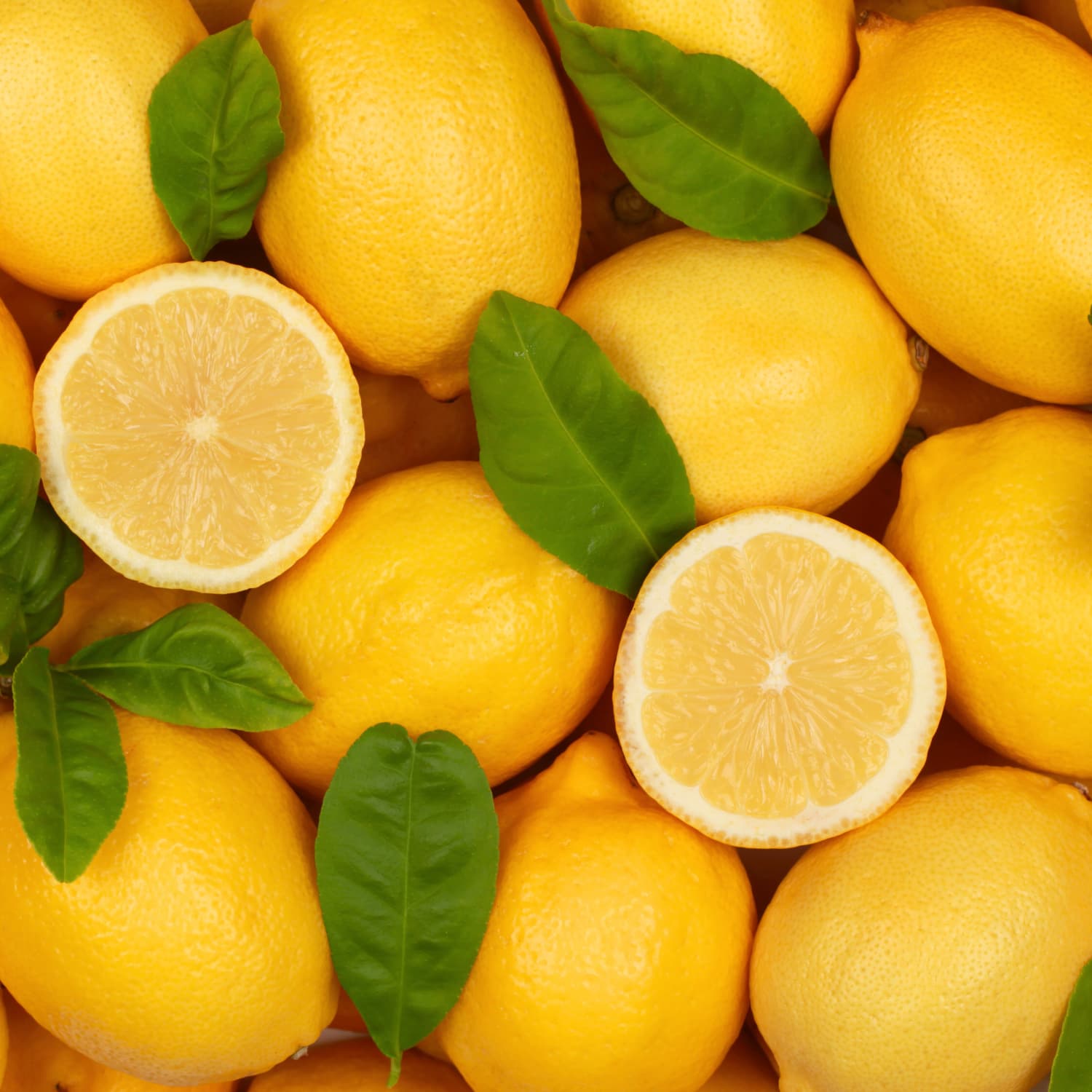
Lemon Extract (Citrus limon)
Lemon, the fruit of Citrus limon, is a widely cultivated citrus known for its bright flavor, aroma, and high vitamin C content. Rich in ascorbic acid, flavonoids, and essential oils, lemons provide antioxidant, immune-supportive, and digestive benefits. Traditionally used in culinary, medicinal, and beverage applications, lemon supports hydration, nutrient absorption, and overall wellness. Its essential oils are also valued for aromatherapy, flavoring, and natural cleansing properties. Lemons can be consumed fresh, juiced, as zest, or in extracts, offering versatility in both food and supplement forms. They are appreciated for their refreshing taste, natural health support, and functional versatility.
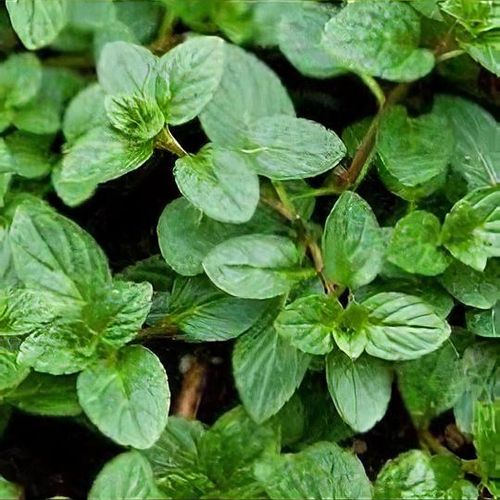
Black Mitcham English Peppermint
Black Mitcham Peppermint is a high-quality variety of Mentha × piperita, renowned for its strong, refreshing aroma and concentrated menthol content. Traditionally cultivated for culinary, medicinal, and essential oil applications, it is valued for its digestive-soothing, cooling, and mild antimicrobial properties. The essential oils extracted from Black Mitcham Peppermint contain menthol, menthone, and other volatile compounds that support comfort during digestion, respiratory ease, and sensory stimulation. Available as fresh leaves, dried herbs, or essential oils, this peppermint variety is widely used for teas, flavoring, aromatherapy, and wellness preparations, prized for its potency, refreshing taste, and traditional health-supportive benefits.
FUNGI
Fungi are a diverse group of organisms that are utilized for their medicinal, nutritional, or therapeutic properties. The term "fungus" refers to various types of fungi, including mushrooms, molds, and yeasts, which are harnessed for their bioactive compounds that support health and wellness. These fungal species have been central to numerous traditional healing practices, such as Traditional Chinese Medicine (TCM) and Ayurvedic medicine, where they are revered for their adaptogenic, immune-modulating, and restorative effects. Fungi have found applications in modern health practices as well, offering a natural means of enhancing vitality, cognitive function, and overall well-being.

Chaga (Inonotus obliquus)
Chaga is a medicinal mushroom that grows primarily on birch trees in cold climates, including Siberia, Canada, and Northern Europe. It is rich in antioxidants, polysaccharides, and betulinic acid, which contribute to its traditional use in supporting immune function, cellular health, and overall wellness. Historically, Chaga has been consumed as a tea, tincture, or powder in folk medicine for its adaptogenic and wellness-promoting properties. Valued for centuries, it is known for its deep, earthy flavor and naturally dark appearance. Today, Chaga is incorporated into modern wellness practices for its antioxidant support, immune resilience, and holistic health benefits.
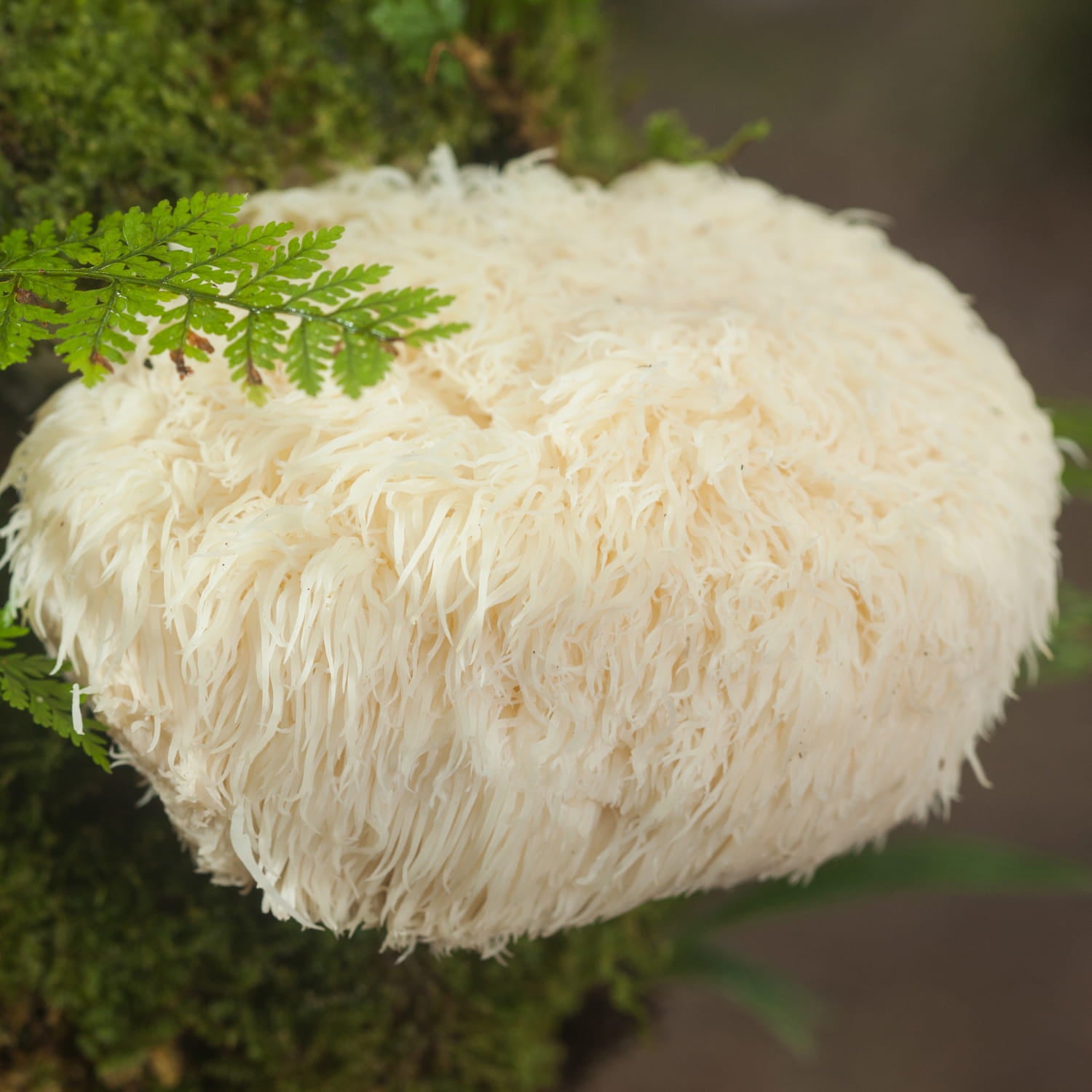
LIONS MANE (Hericium erinaceus)
Lion’s Mane is a distinctive medicinal mushroom known for its white, cascading, spiny appearance and long history in traditional Asian medicine. It contains bioactive compounds such as hericenones and erinacines, which are believed to support cognitive function, nervous system health, and overall mental clarity. Traditionally consumed as a cooked mushroom, tea, or extract, Lion’s Mane is valued for its neuro-supportive and adaptogenic properties. Modern use often includes powders, capsules, and tinctures. With its mild, nutty flavor and historical use, Lion’s Mane is appreciated for its potential to support focus, memory, and general wellness in a natural, holistic way.
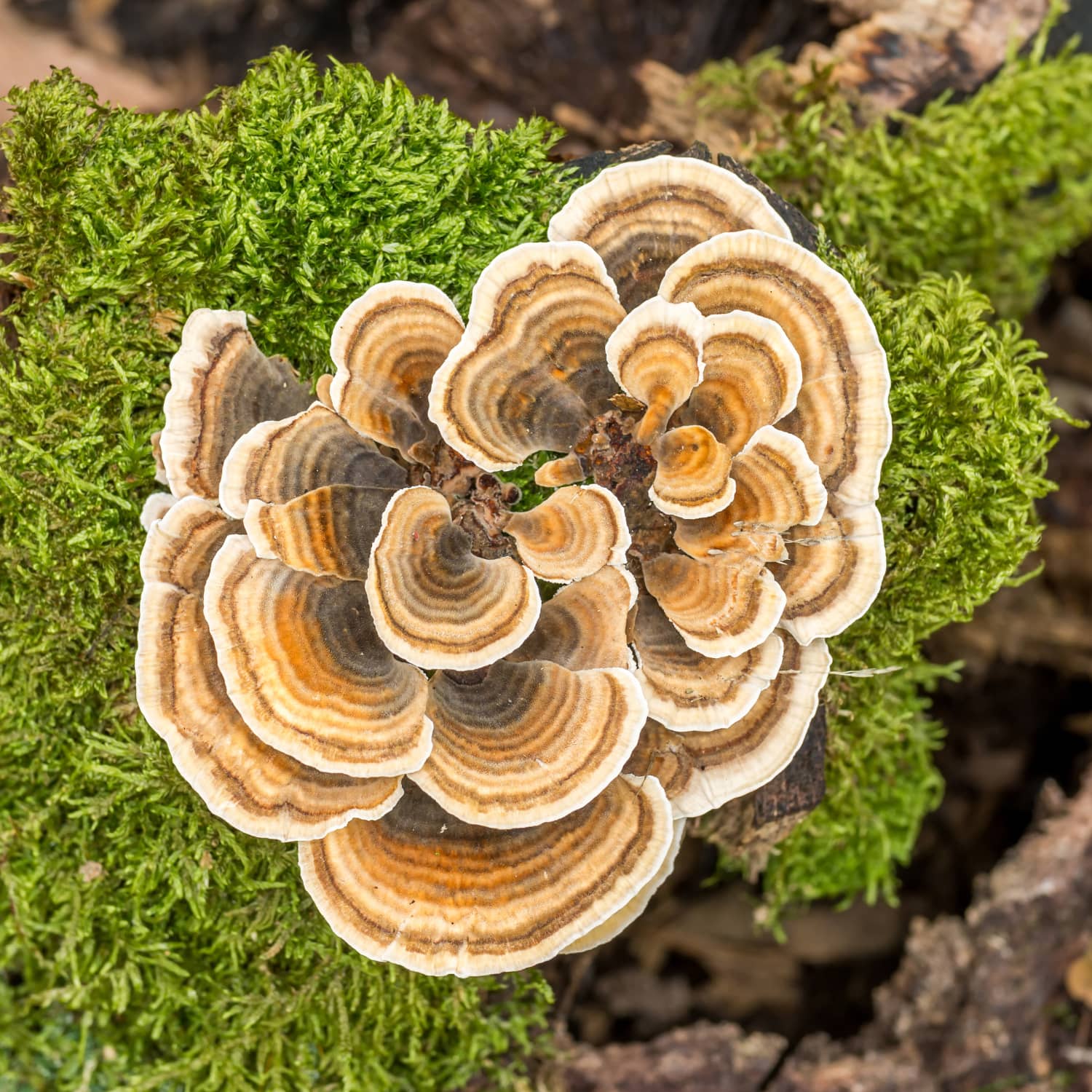
TURKEY TAIL (Trametes versicolor)
Turkey Tail is a medicinal mushroom named for its colorful, fan-shaped appearance resembling a wild turkey’s tail. Native to forests worldwide, it contains bioactive compounds such as polysaccharopeptides (PSP) and polysaccharides (PSK), which contribute to its traditional use in supporting immune function and overall wellness. Historically consumed as a tea, decoction, or extract in Asian and Indigenous medicine, Turkey Tail is valued for its adaptogenic and health-supportive properties. Modern preparations include powders, capsules, and tinctures. Known for its earthy taste and rich antioxidant content, Turkey Tail continues to be appreciated for immune resilience, gut health support, and holistic wellness.
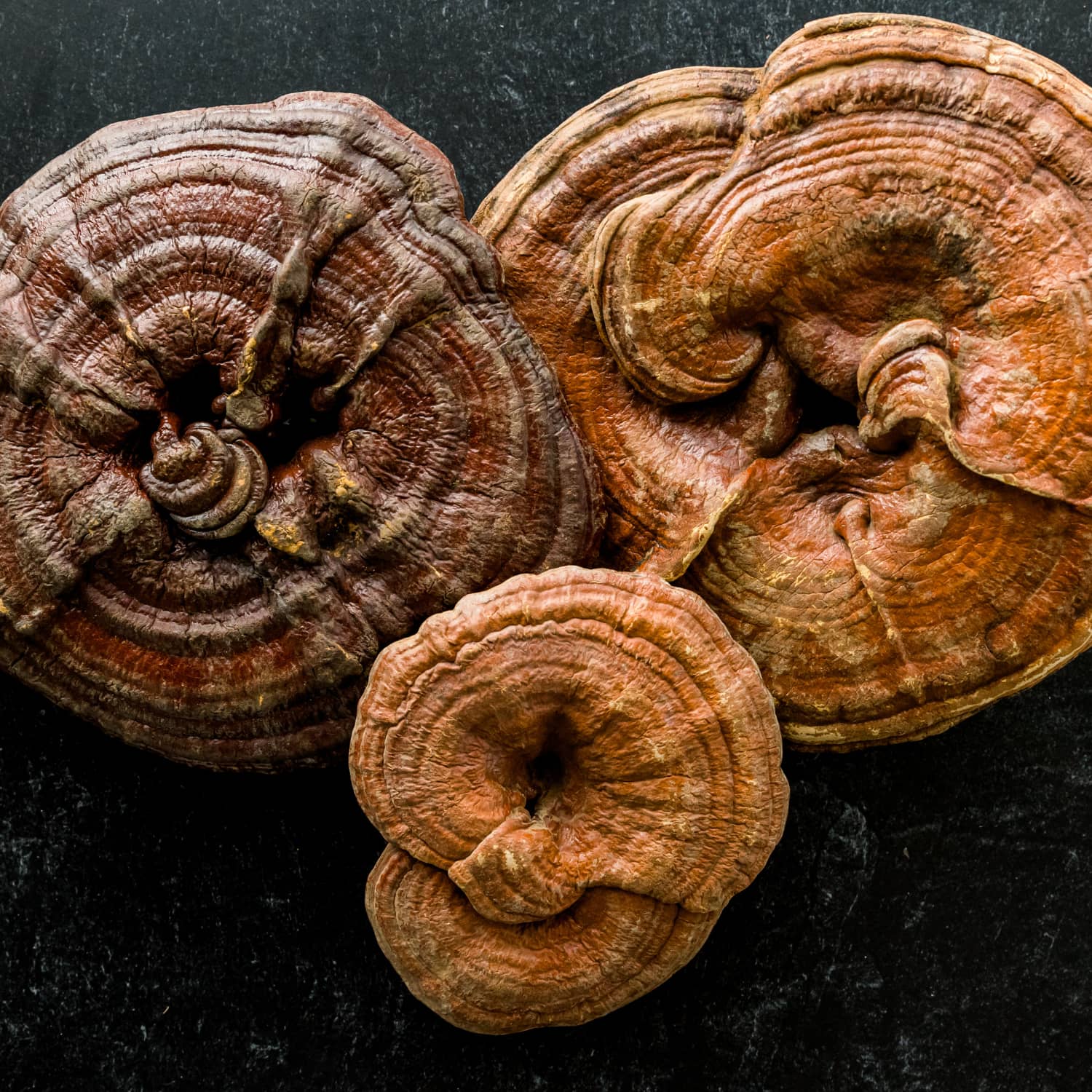
REISHI (Ganoderma lucidum)
Reishi, also known as Ganoderma lucidum or “Lingzhi,” is a medicinal mushroom with a long history in traditional Chinese medicine. Recognized for its hard, woody texture and glossy reddish-brown cap, it contains bioactive compounds such as triterpenes, polysaccharides, and peptidoglycans. Reishi is traditionally used to support immune health, stress resilience, and overall vitality. Commonly consumed as teas, extracts, or powders, it is valued for its adaptogenic and wellness-promoting properties. Revered for centuries, Reishi continues to be incorporated into modern wellness practices for longevity support, cellular health, and holistic well-being, offering a natural approach to maintaining balance and vitality.
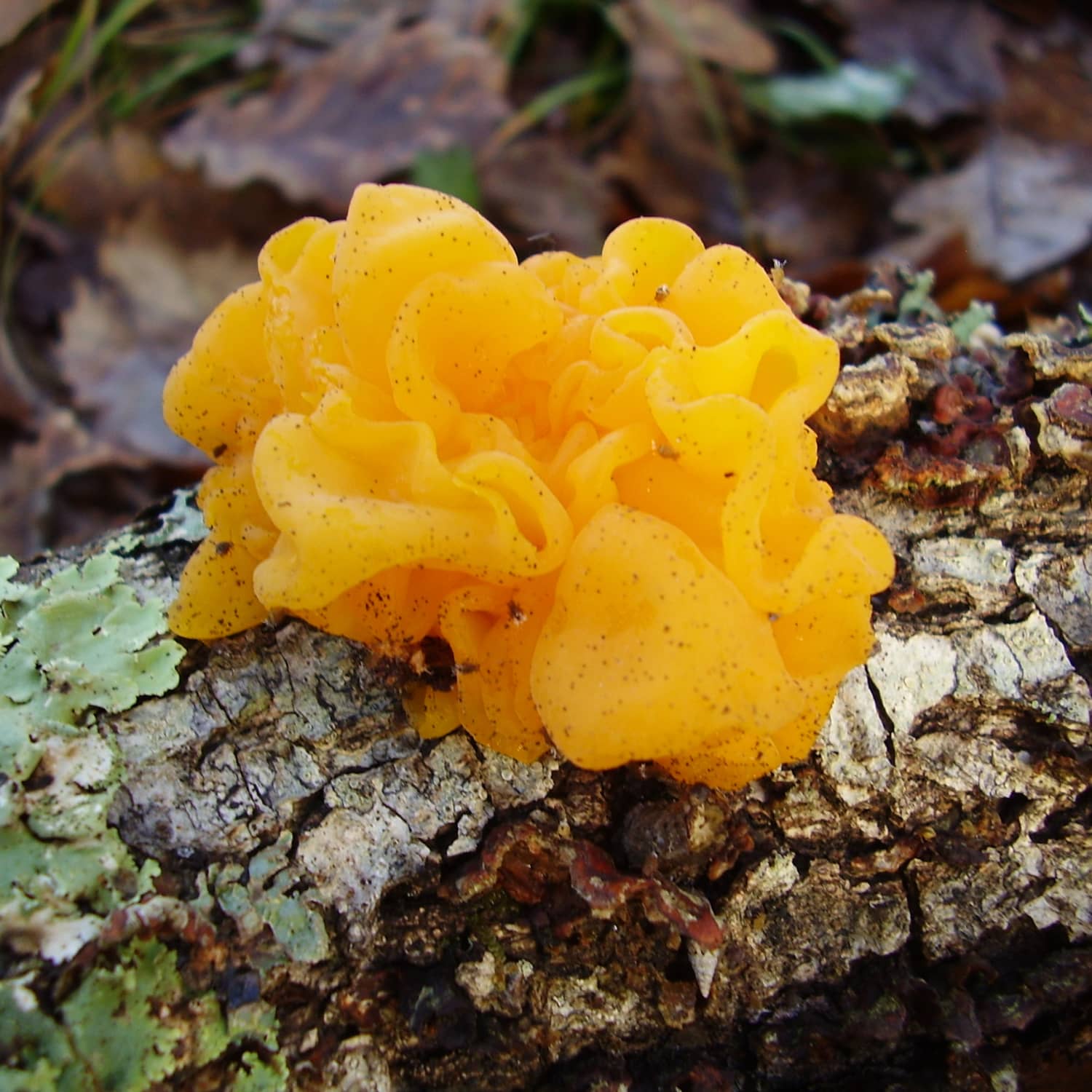
TREMELLA (Tremella fuciformis)
Tremella, also known as Tremella fuciformis or “Snow Mushroom,” is a gelatinous medicinal mushroom prized in traditional Asian medicine for its hydrating and skin-supportive properties. Rich in polysaccharides, antioxidants, and natural polysaccharide complexes, it is valued for its ability to retain moisture, support cellular health, and promote overall wellness. Traditionally used in soups, teas, and tonics, Tremella has been incorporated into modern wellness and skincare formulations. Its mild, slightly sweet flavor and unique texture make it versatile in culinary and supplement applications. Tremella continues to be appreciated for its hydration support, antioxidant benefits, and natural adaptogenic properties.
NOOTROPICS
Nootropics are a class of substances known for their cognitive-enhancing properties, which support and improve mental functions such as memory, focus, creativity, and overall brain performance. The term "nootropic" refers to any compound—whether natural or synthetic—that can positively influence the brain's cognitive processes, neuroplasticity, and mental clarity. These substances are utilized for their ability to enhance brain health, increase mental alertness, and promote cognitive longevity, often by supporting neurotransmitter function, improving circulation to the brain, and reducing oxidative stress. Nootropics have gained widespread recognition in both traditional medicine systems, such as Ayurveda and Chinese Medicine, as well as in contemporary neuroscience and wellness practices, where they are sought after for their potential to optimize mental acuity, reduce cognitive decline, and elevate mood.
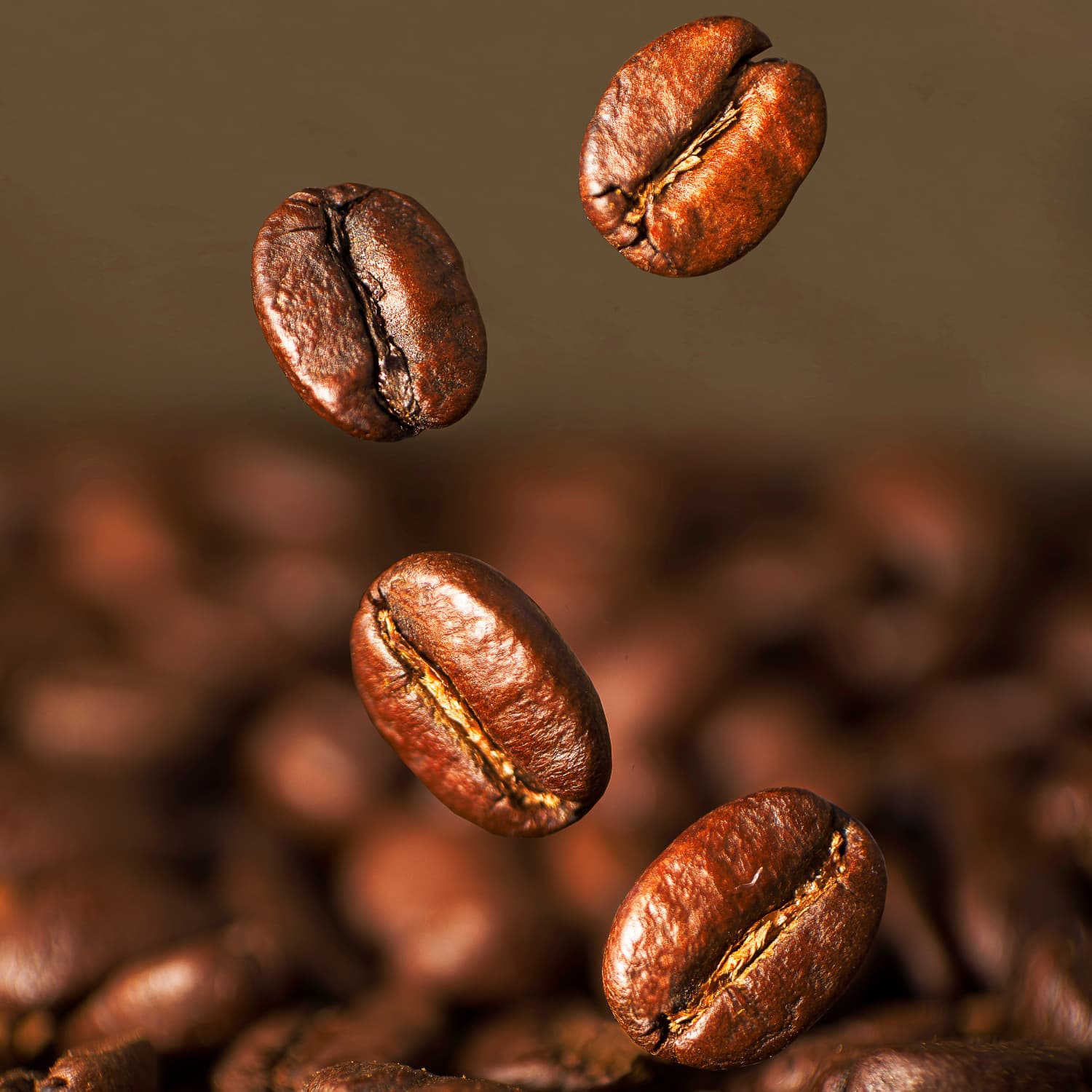
Caffeine
Caffeine is a natural central nervous system stimulant that enhances alertness, attention, and mental clarity by blocking adenosine receptors in the brain. This inhibition reduces feelings of fatigue and promotes wakefulness, allowing for sustained focus during cognitively demanding tasks. Caffeine also increases dopamine and norepinephrine activity, supporting improved mood, motivation, and reaction time. It can enhance short-term memory, learning, and problem-solving under stress. Additionally, caffeine boosts physical performance and endurance, indirectly benefiting cognitive function through increased energy and circulation. When combined with L-Theanine, caffeine delivers smooth, focused energy without jitters, making it a staple nootropic.
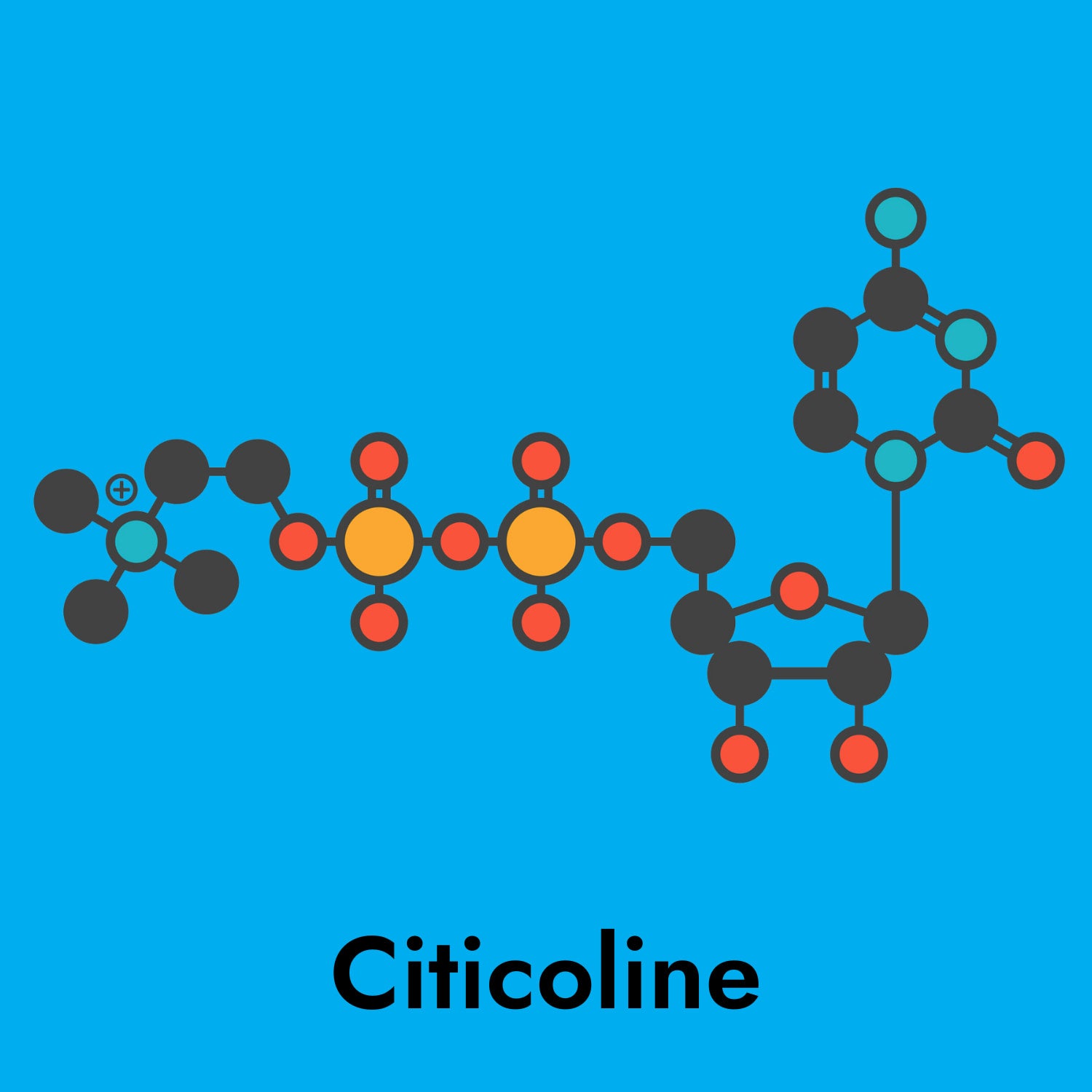
Citicoline
Citicoline (also known as CDP-Choline) is a potent nootropic and neuroprotective compound that supports brain health and cognitive performance. It works by providing choline, a precursor for acetylcholine, a key neurotransmitter involved in memory, attention, and learning. Citicoline also contributes to phospholipid synthesis in neuronal membranes, promoting structural integrity and neuroplasticity. Supplementation has been shown to enhance focus, mental energy, memory recall, and cognitive resilience, particularly under stress or age-related decline. Additionally, citicoline may support dopamine receptor function, improving motivation and mood. It is well-tolerated and often combined with other cognitive enhancers for synergistic effects.
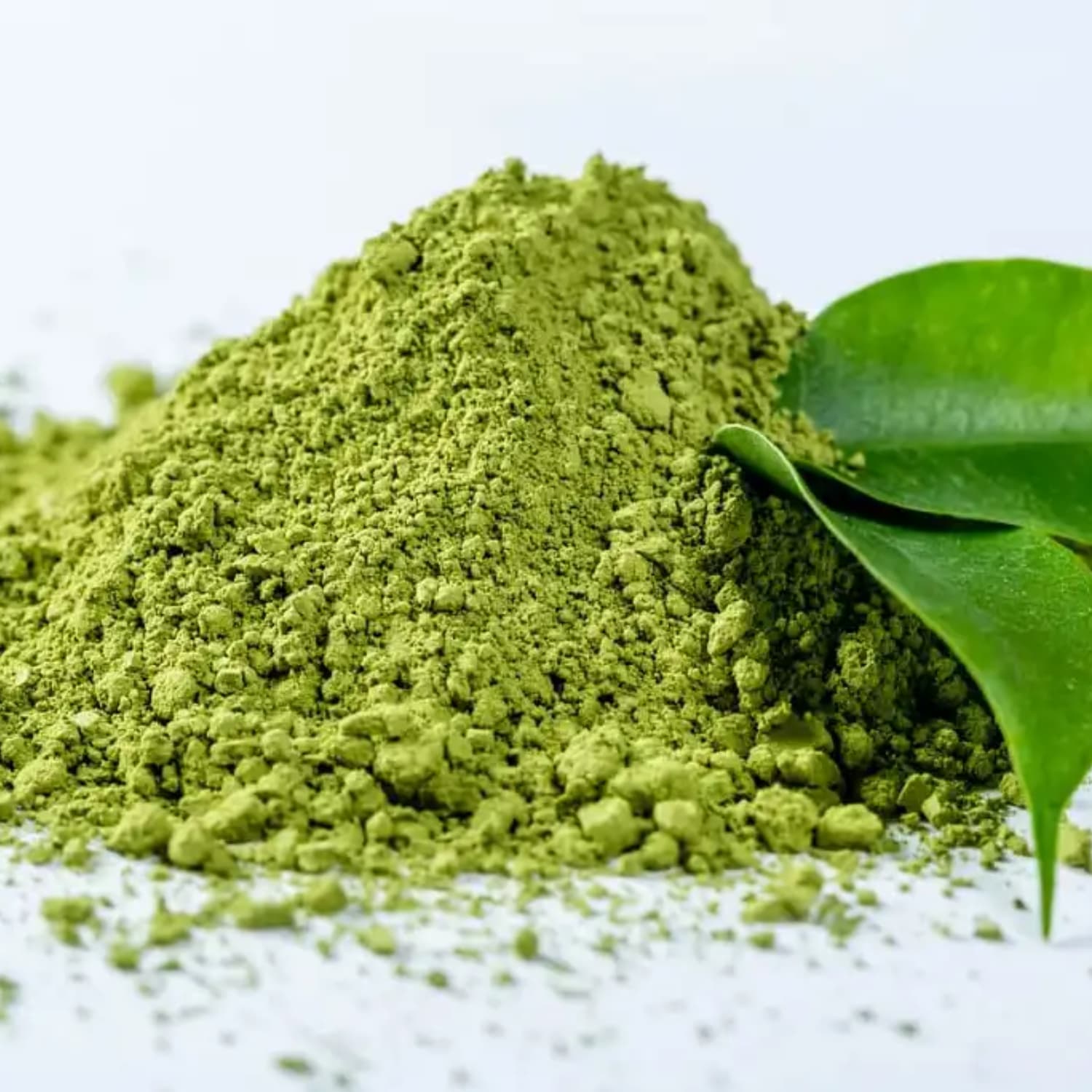
L-Theanine
L-Theanine is a naturally occurring amino acid found primarily in green and black tea leaves. It promotes relaxation without drowsiness by increasing alpha brain wave activity, which is associated with a calm yet alert mental state. L-Theanine also modulates neurotransmitters such as GABA, dopamine, and serotonin, supporting mood balance, stress reduction, and improved focus. When combined with caffeine, it synergistically enhances attention, reaction time, and cognitive performance while reducing the jitteriness and overstimulation that caffeine alone can cause. L-Theanine is widely used as a nootropic to promote calm focus, mental clarity, and overall cognitive resilience.
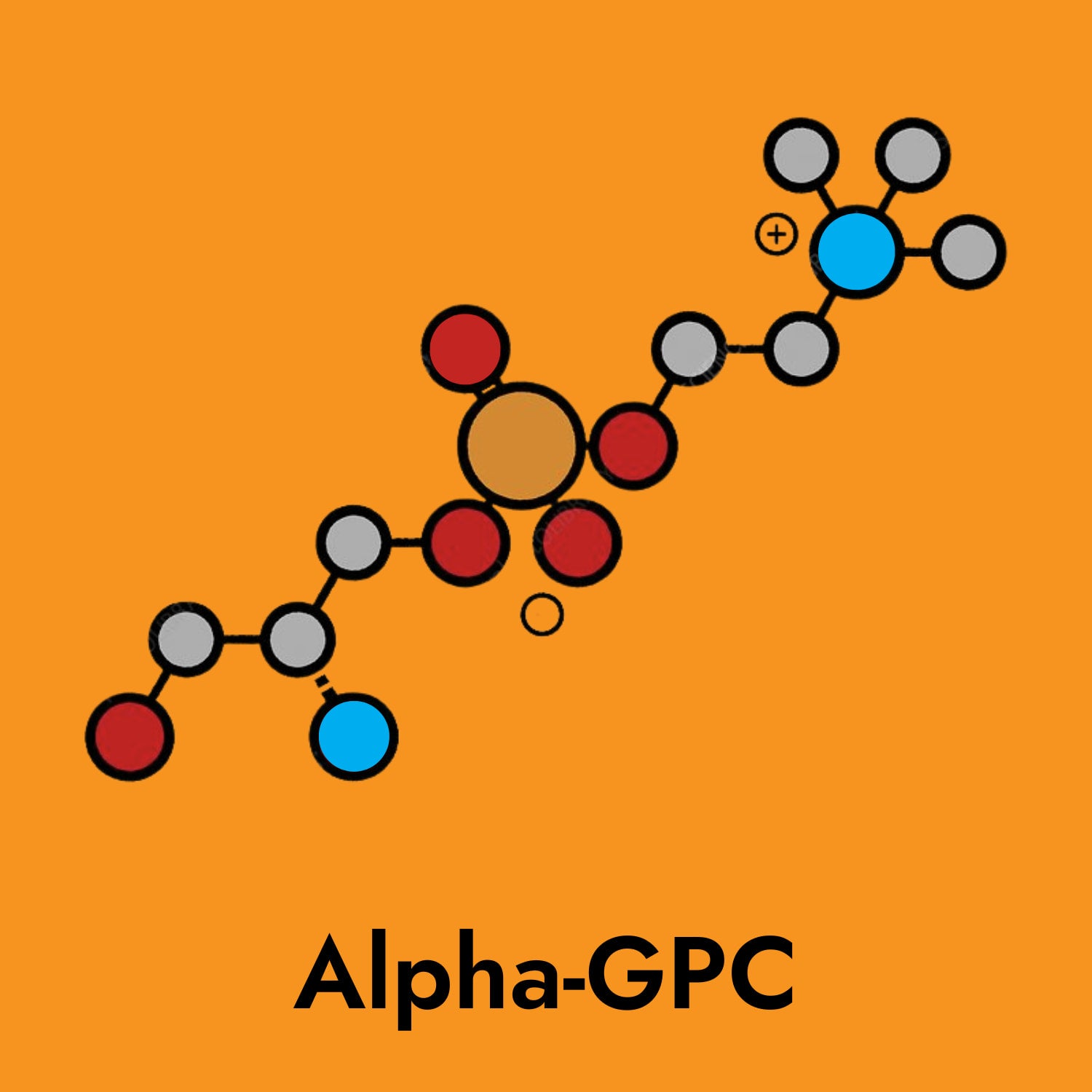
Alpha-GPC
Alpha-GPC (Alpha-glycerylphosphorylcholine) is a highly bioavailable choline source that supports brain health and cognitive performance. It increases acetylcholine levels, a key neurotransmitter involved in memory, learning, and attention, making it especially beneficial for focus, mental clarity, and neuroplasticity. Alpha-GPC also supports neuronal membrane integrity and may enhance growth hormone release, indirectly benefiting brain and physical performance. Research shows it can improve memory recall, cognitive function under stress, and reaction time, particularly in aging adults or those with cognitive decline. Often paired with racetams, Alpha-GPC amplifies nootropic effects for sharper, more sustained mental performance.
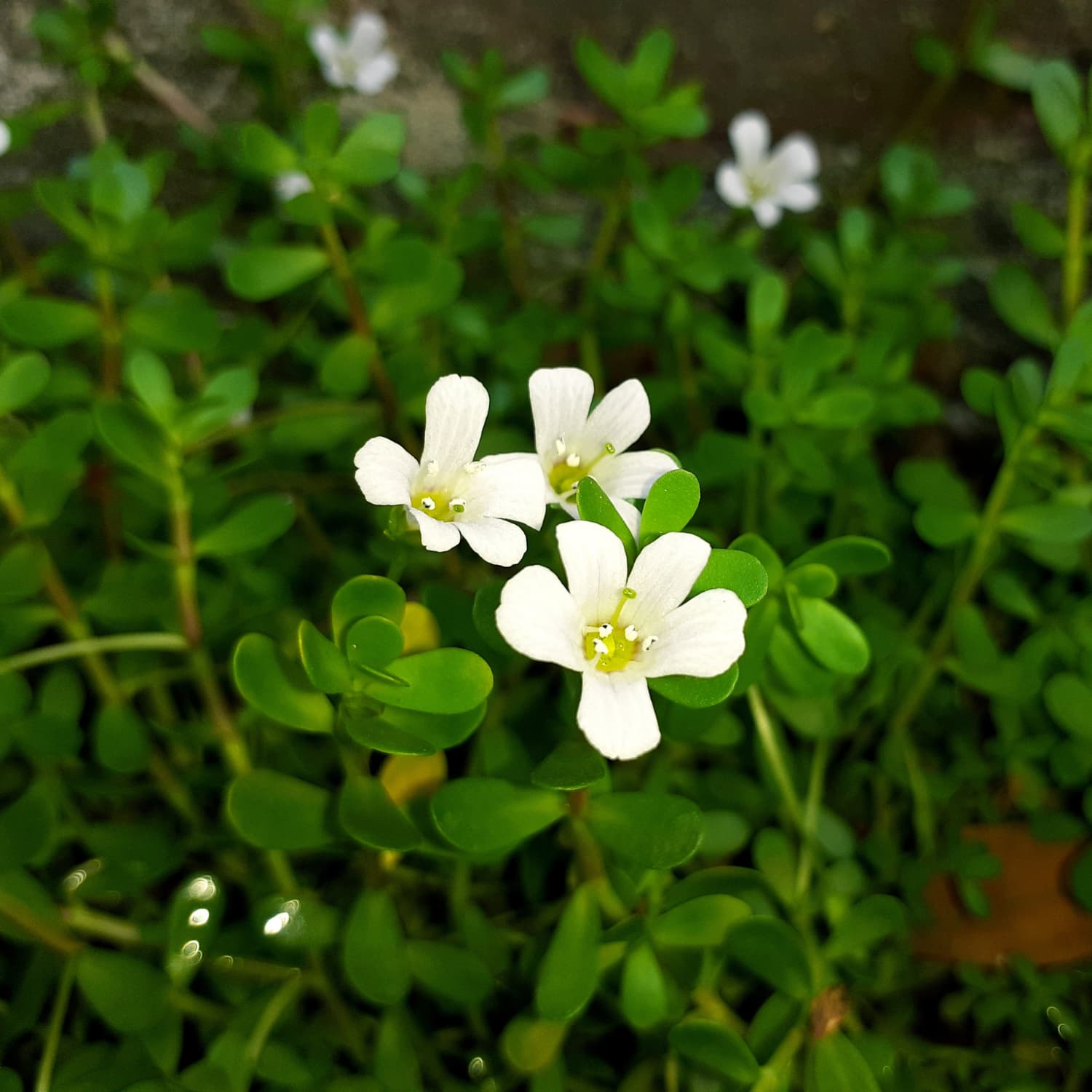
Bacopa Monnieri
Bacopa Monnieri is a traditional Ayurvedic herb widely recognized as a powerful cognitive enhancer. Its active compounds, bacosides, support synaptic communication and protect neurons from oxidative stress, promoting long-term brain health. Bacopa is primarily known for improving memory consolidation, learning, and information retention, making it valuable for students and adults seeking cognitive longevity. It also exhibits adaptogenic and anxiolytic effects, helping reduce stress and mental fatigue. Regular supplementation has been shown to enhance attention, focus, and mental clarity over time. Bacopa Monnieri is typically used in standardized extracts, providing consistent cognitive benefits without stimulant-related side effects.
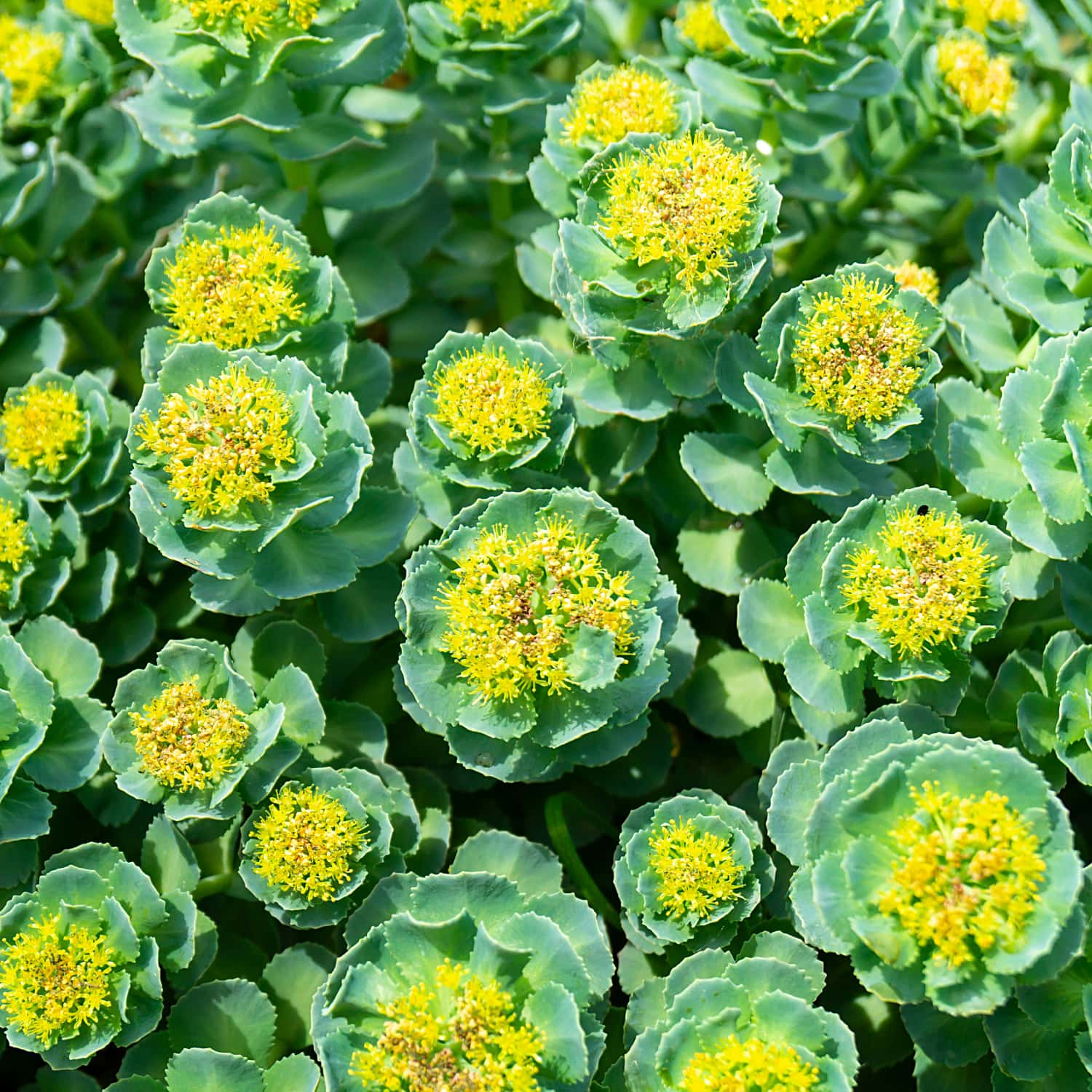
Rhodiola Rosea
Rhodiola Rosea is an adaptogenic herb that helps the body resist physical, mental, and emotional stress. It modulates the hypothalamic-pituitary-adrenal (HPA) axis and supports catecholamine balance, including dopamine and norepinephrine, which enhances mood, motivation, and cognitive resilience. Rhodiola is particularly effective at reducing mental fatigue, improving focus, and sustaining attention during prolonged cognitive tasks. It may also support memory recall and processing speed under stress, making it valuable for high-demand work or study environments. With its energizing yet non-stimulatory effects, Rhodiola Rosea promotes balanced mental performance and stress-adapted cognition.
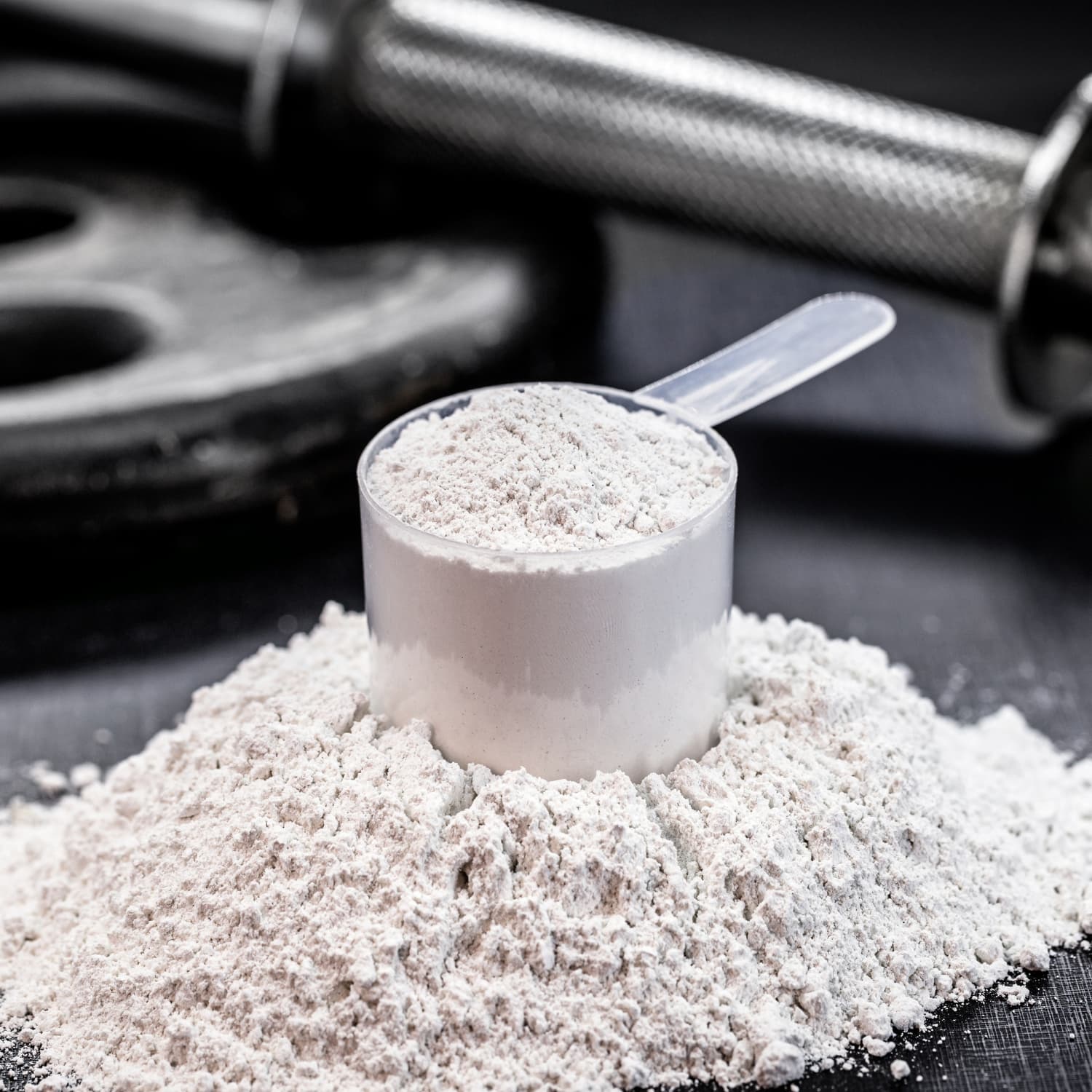
Creatine Monohydrate
Creatine Monohydrate is widely known for its physical performance benefits, but it also functions as a powerful cognitive enhancer. In the brain, creatine supports the rapid regeneration of ATP (cellular energy), which is critical for high-demand mental tasks such as working memory, problem-solving, and sustained focus. Supplementation can reduce mental fatigue, improve reaction time, and enhance performance under sleep deprivation or stress. Creatine may also provide neuroprotective effects, supporting brain health over time. Easily absorbed as a powder or capsule, it is a safe, well-studied nootropic that boosts both energy and cognitive resilience.

Ginkgo Biloba
Ginkgo Biloba is a plant extract renowned for its neuroprotective and cognitive-enhancing properties. It primarily works by improving cerebral blood flow, delivering more oxygen and nutrients to neurons, and by acting as an antioxidant, protecting brain cells from oxidative stress. Ginkgo supports memory, attention, and mental processing speed, making it especially useful for age-related cognitive decline. It may also enhance focus and mental clarity under stress and fatigue. Often used in standardized extracts, Ginkgo Biloba is a well-tolerated nootropic that promotes overall brain health, cognitive performance, and long-term neuronal resilience.
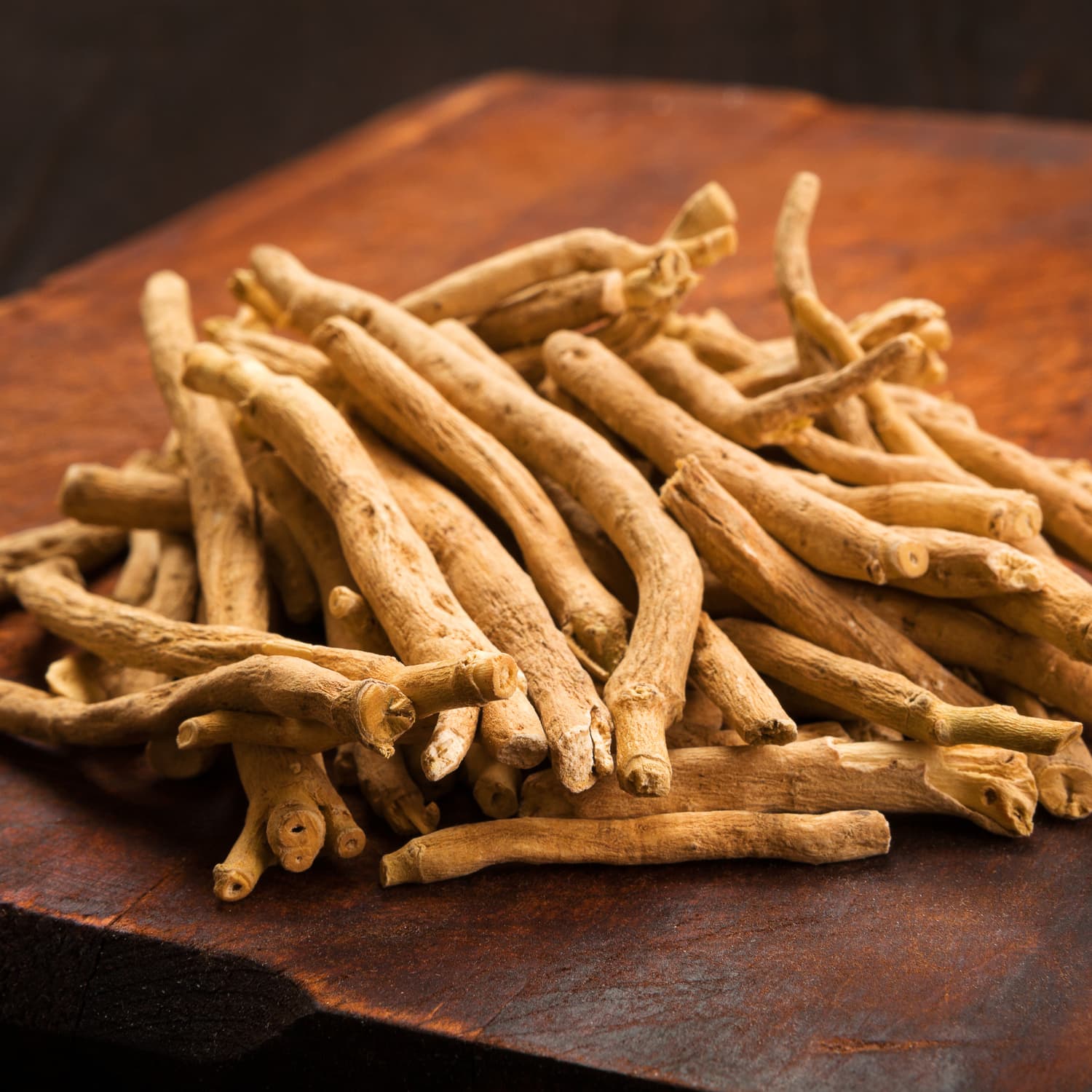
Ashwagandha
Ashwagandha (Withania somnifera) is a powerful adaptogenic herb that supports both mental and physical resilience. It modulates the HPA axis and lowers cortisol levels, helping the brain and body manage stress more effectively. Ashwagandha promotes calm focus, improved memory, and cognitive clarity while reducing anxiety and mental fatigue. Some studies suggest it can enhance attention, reaction time, and executive function, particularly in high-stress environments. Additionally, it supports neuroprotection through antioxidant activity and may improve overall brain health. As a nootropic, Ashwagandha is valued for stress-adapted cognition, mood balance, and sustained mental performance.
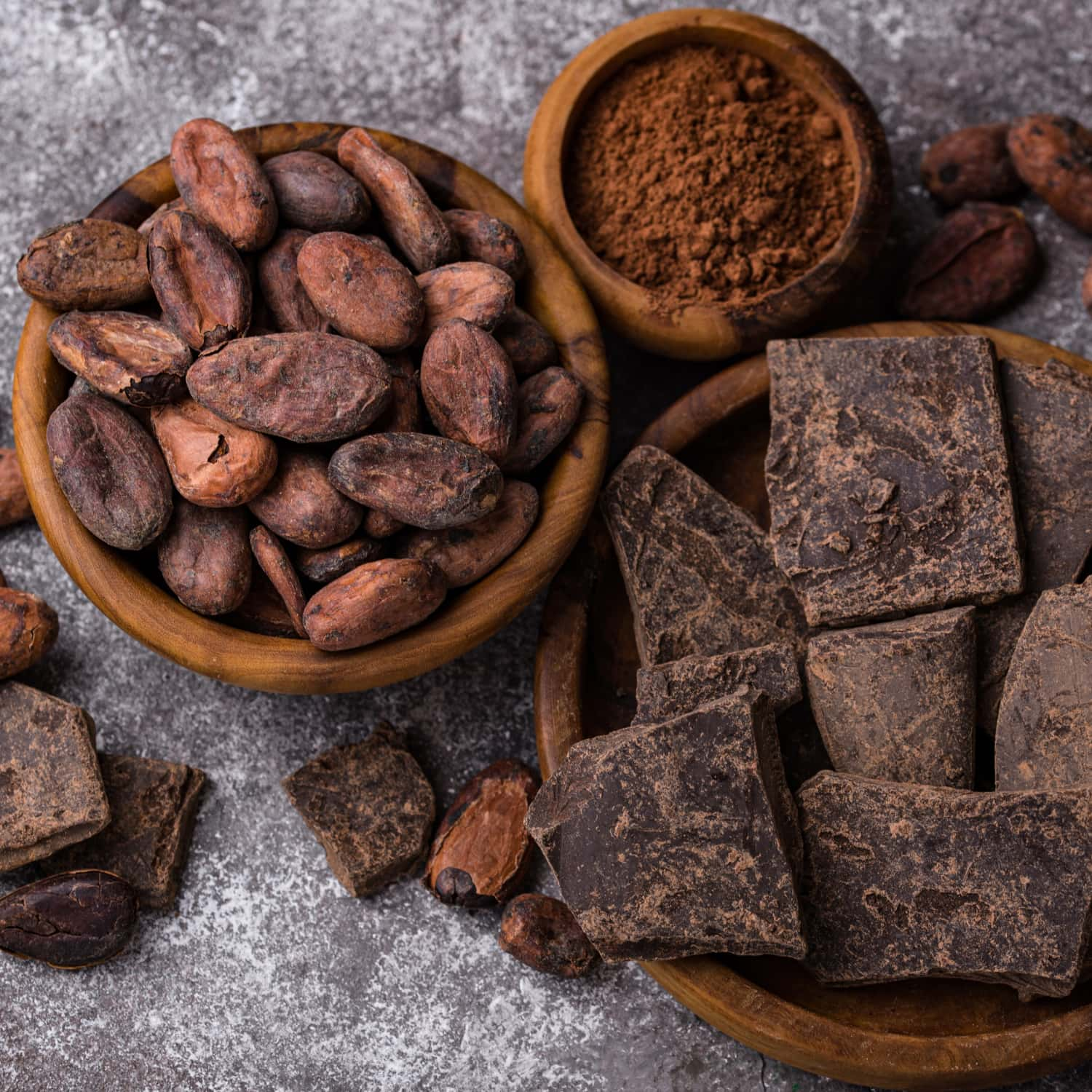
Theobromine
Theobromine is a mild stimulant naturally found in cacao and chocolate, structurally related to caffeine but gentler on the nervous system. It works by modulating adenosine receptors, promoting alertness and wakefulness without the jitteriness or rapid crash associated with caffeine. Theobromine also acts as a vasodilator, enhancing blood flow to the brain, which can improve cognitive function, focus, and mental clarity. Additionally, it supports a mild mood boost through dopamine and serotonin modulation and has subtle cardiovascular and endurance benefits. As a nootropic, theobromine offers sustained, smooth energy and enhanced cognitive performance.
EUPHORICS
Euphorics are substances that are utilized for their mood-enhancing, stimulating, or psychoactive effects. The term "euphoric" refers to any compound - whether natural or synthetic - that can elevate mood, induce feelings of well-being, or enhance mental clarity. These substances, which include various plant extracts, fungi, and nootropic compounds, have been employed across different cultures and traditions to promote mental and emotional balance. Used in both traditional healing systems, such as Ayurvedic and Chinese medicine, and modern wellness practices, euphorics are valued for their ability to support mental focus, alleviate stress, and encourage a positive emotional state, fostering overall psychological resilience and vitality.

Phenylethylamine
Phenylethylamine (PEA) is a natural compound found in chocolate and certain supplements that acts as a mood-boosting and cognitive-enhancing agent. Often called the “love molecule,” PEA promotes feelings of euphoria, focus, and mental energy by increasing dopamine and norepinephrine activity in the brain. It can enhance motivation, alertness, and a sense of well-being, making it popular for mood support and mild stimulation. PEA is rapidly metabolized, so it is often combined with MAO-B inhibitors or other synergistic compounds to prolong its effects. As a legal, natural euphoric, PEA supports enhanced mood, focus, and mental clarity.

Saffron (Crocus Sativus)
Saffron extract, derived from the precious Crocus sativus flower, is a natural powerhouse for mood, cognition, and emotional resilience. Within the Joyful Humans framework, saffron supports the microbiota-gut-brain axis (MGBA) by modulating serotonin, dopamine, and GABA pathways, helping to reduce anxiety, balance mood, and promote mental clarity. Its antioxidant and anti-inflammatory properties protect neurons and gut health, enhancing overall homeostasis. When combined with adaptogens, psychobiotics, or other botanicals, saffron offers a holistic approach to thriving, supporting healthy vagus nerve signaling, emotional balance, and cognitive performance.

Blue Lotus Flower
Blue Lotus Extract is derived from the flowers of the Nymphaea caerulea plant, a water lily native to Egypt and parts of Asia. The extract contains alkaloids and flavonoids that contribute to its calming and mood-supportive properties. Traditionally used in teas, tinctures, and ceremonial preparations, Blue Lotus Extract is believed to help promote relaxation, reduce stress, and support emotional well-being. It has been valued historically for mild sedative and euphoric effects, as well as its use in holistic wellness practices. Today, it is commonly incorporated into supplements, teas, and aromatherapy products for gentle relaxation and mood support.

Kanna Extract
Kanna (Sceletium tortuosum) is a South African succulent renowned for its mood-enhancing and calming effects. Traditionally used by indigenous communities, it promotes a sense of euphoria, relaxation, and reduced anxiety. Kanna works primarily by inhibiting serotonin reuptake, mildly increasing serotonin levels, and modulating dopamine activity, which contributes to its uplifting and motivating effects. It also exhibits mild PDE4 inhibition, supporting cognitive clarity and stress resilience. Available as capsules, tinctures, or teas, Kanna is a legal natural euphoric often used for enhanced mood, social confidence, and subtle mental stimulation without the overstimulation associated with traditional stimulants.
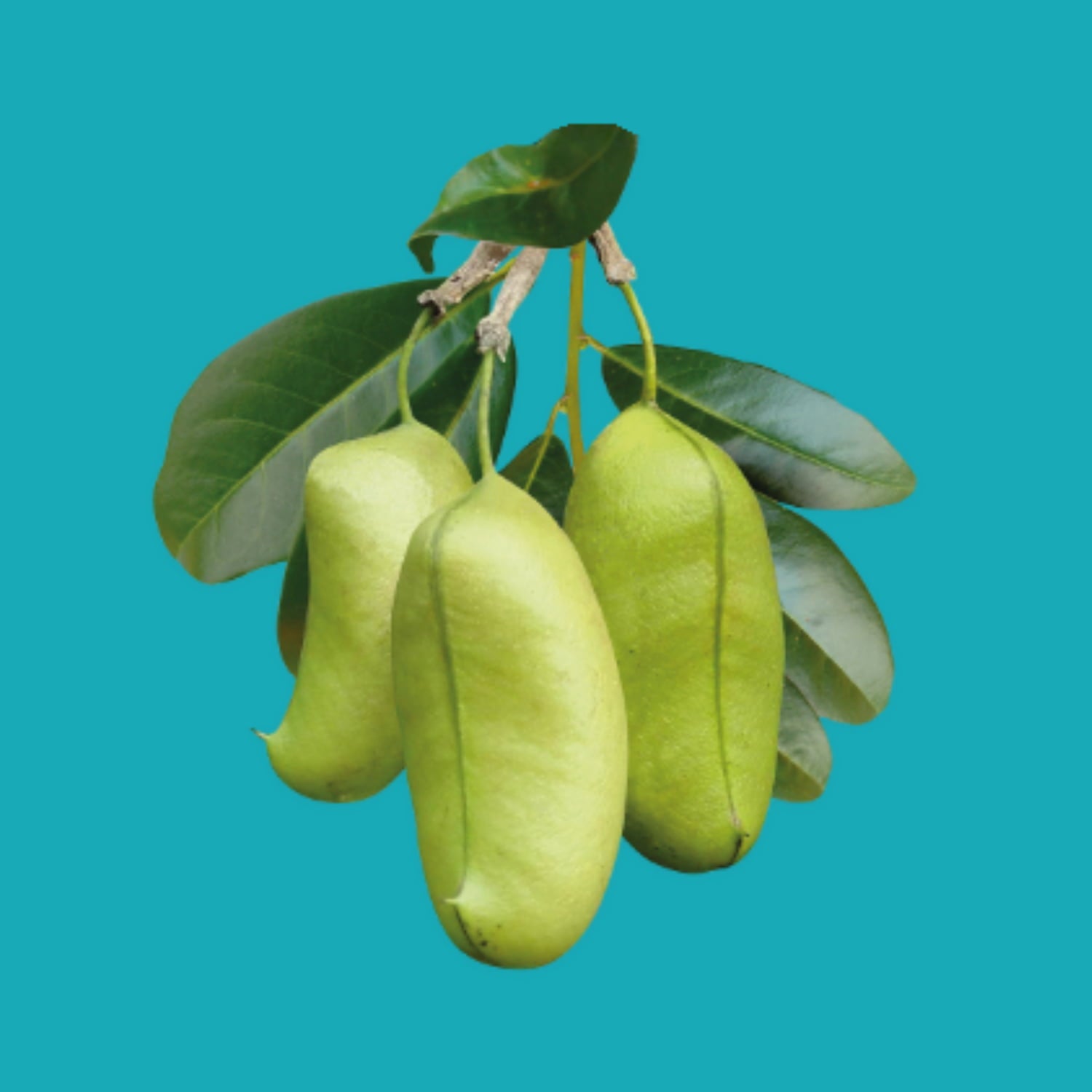
5-HTP
5-HTP (5-Hydroxytryptophan) is a natural compound extracted from the seeds of Griffonia simplicifolia, a West African plant. It serves as a direct precursor to serotonin, the neurotransmitter responsible for mood regulation, sleep, and emotional balance. Supplementing with 5-HTP can promote enhanced mood, reduced anxiety, improved sleep quality, and mild euphoric feelings. It is often used for stress management, depression support, and appetite regulation. 5-HTP is generally well-tolerated but should be used cautiously with other serotonergic compounds, such as SSRIs, to avoid excessive serotonin activity. It’s a popular legal natural euphoric and mood enhancer.
PRE/PostBIOTICS & Psychobiotics
Prebiotics, postbiotics, and psychobiotics are specialized substances that play pivotal roles in supporting gut health and mental well-being. Prebiotics are non-digestible fibers or compounds found in various foods that serve as nourishment for beneficial gut bacteria. Probiotics are live microorganisms, typically bacteria or yeasts, that, when consumed in adequate amounts, confer health benefits to the host, particularly by enhancing the gut microbiome. Psychobiotics are a class of probiotics specifically designed to positively influence brain function and emotional well-being through the microbiota-gut-brain axis (MGBA).
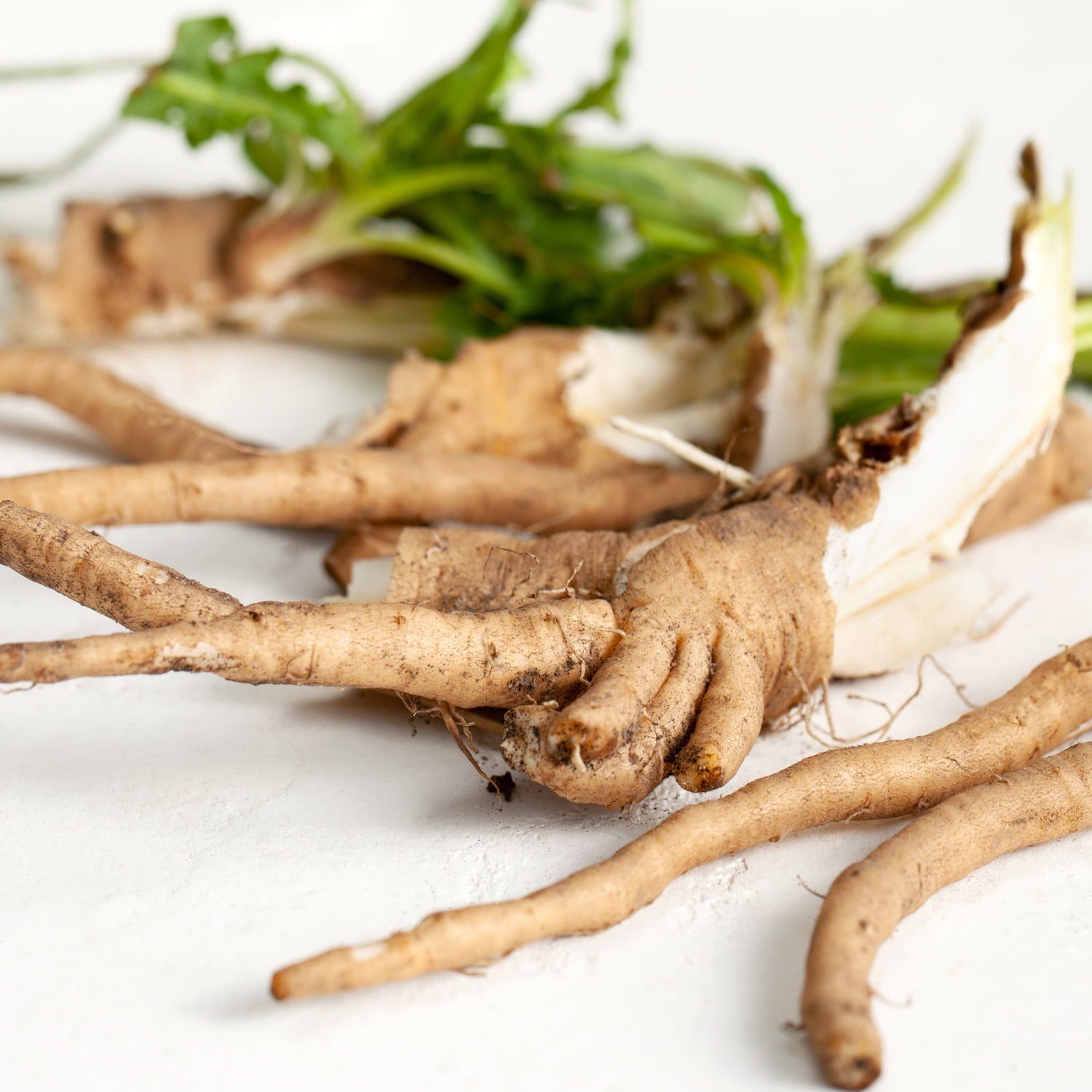
Inulin / Chicory Root (Fiber)
Inulin, commonly derived from chicory root, is a soluble dietary fiber and potent prebiotic that selectively nourishes beneficial gut bacteria such as Bifidobacteria. By promoting microbial growth, inulin supports digestive health, regular bowel movements, and short-chain fatty acid (SCFA) production, which in turn enhances gut barrier function, reduces inflammation, and supports immune function. Inulin also aids mineral absorption, particularly calcium and magnesium, contributing to bone health. Its mild sweetness and functional properties make it popular in foods and supplements. Regular inulin intake can improve gut microbiota diversity, metabolic balance, and overall gastrointestinal resilience, making it a cornerstone prebiotic.
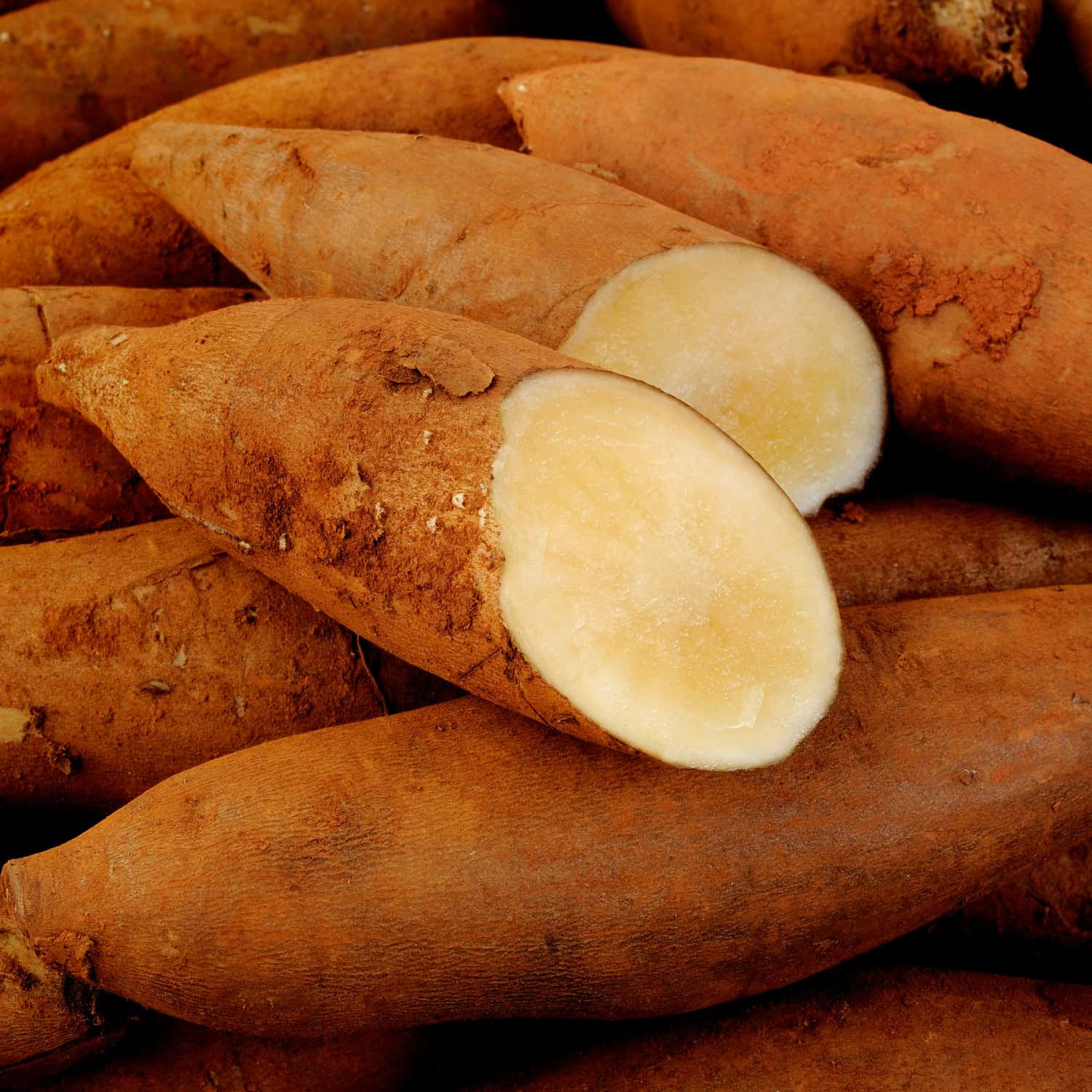
Fructooligosaccharides (FOS)
Fructooligosaccharides (FOS) are naturally occurring prebiotic fibers found in foods like onions, garlic, asparagus, and bananas. FOS resist digestion in the upper gastrointestinal tract, reaching the colon intact, where they selectively feed beneficial gut bacteria such as Bifidobacteria and Lactobacilli. By promoting microbial growth, FOS support gut barrier integrity, regular bowel movements, and short-chain fatty acid (SCFA) production, which help reduce inflammation and enhance immune function. FOS also play a role in metabolic health, mineral absorption, and overall digestive balance. As a gentle, natural prebiotic, FOS help maintain a diverse, resilient microbiome, contributing to long-term gut and systemic wellness.

Resistant Starch (Fiber)
Resistant starch is a type of dietary fiber (Legumes) that escapes digestion in the small intestine and ferments in the colon, where it serves as a prebiotic fuel for beneficial gut bacteria. Found in green bananas, cooked and cooled potatoes or rice, and legumes, it promotes the production of short-chain fatty acids (SCFAs) like butyrate, which support colon health, reduce inflammation, and strengthen the gut barrier. Resistant starch also helps regulate blood sugar, improve insulin sensitivity, and enhance satiety. Regular intake supports microbiome diversity, digestive resilience, and overall metabolic and gut-brain health, making it a key functional fiber.
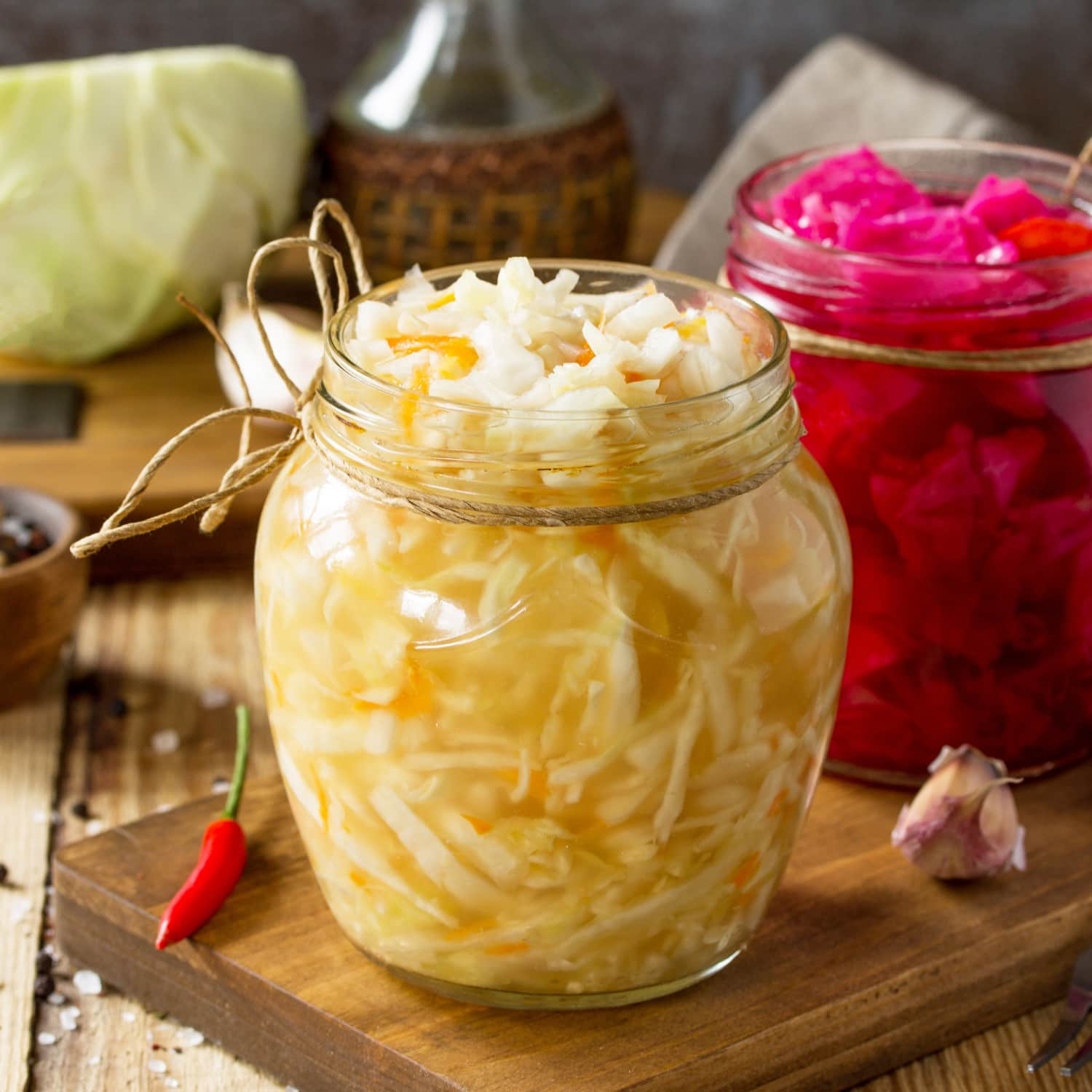
Postbiotics
Postbiotics are bioactive compounds produced by probiotic bacteria during fermentation (sauerkraut), including short-chain fatty acids (SCFAs), bacterial cell wall fragments, peptides, and exopolysaccharides. Unlike probiotics, postbiotics are non-living but still confer significant health benefits, making them stable and easy to incorporate into supplements or functional foods. They support gut barrier integrity, reduce inflammation, and modulate immune responses, while also influencing the microbiota-gut-brain axis to enhance mood, cognitive function, and metabolic balance. By delivering the beneficial effects of a healthy microbiome without requiring live bacteria, postbiotics offer a practical, science-backed approach to gut and systemic wellness.

MGBA-5™ Psychobiotic
MGBA-5™ Psychobiotic is a carefully crafted 5-strain probiotic blend designed to reconnect the microbiota-gut-brain axis (MGBA) and support overall cognitive and emotional well-being. Each strain (Lactiplantibacillus plantarum LP815™, Lactobacillus rhamnosus LR-32, Bifidobacterium longum BL-05, Bacillus coagulans BC-39, Lactobacillus paracasei UALpc-04) was selected for its ability to modulate neurotransmitters, strengthen gut barrier function, and reduce neuroinflammation. Daily use promotes mood balance, mental clarity, focus, and resilience to stress, while supporting healthy digestion and gut microbiome diversity. MGBA-5™ offers a science-backed, shelf-stable solution for those seeking to optimize both brain and gut health naturally.

